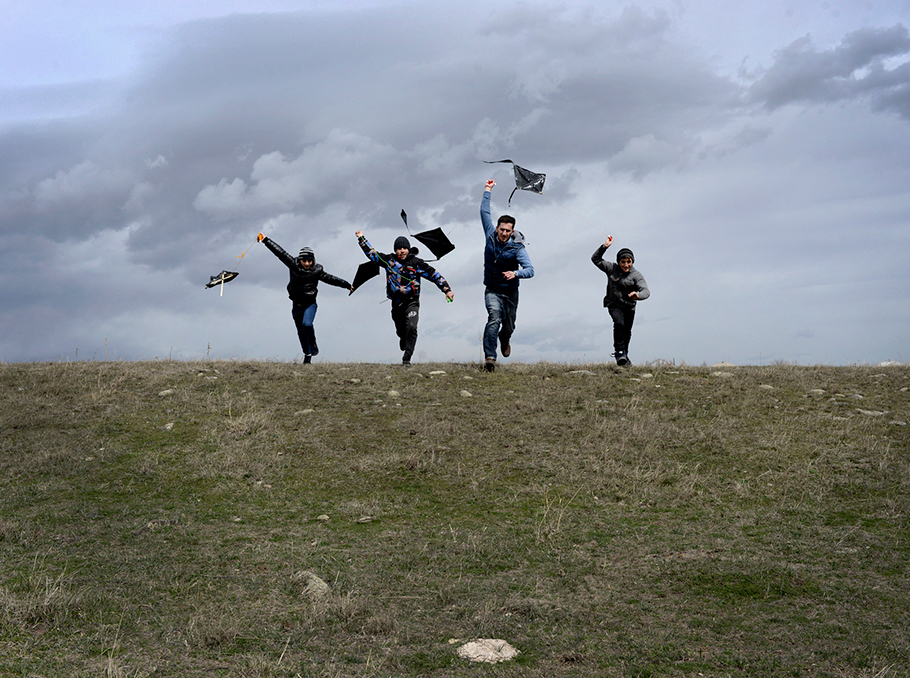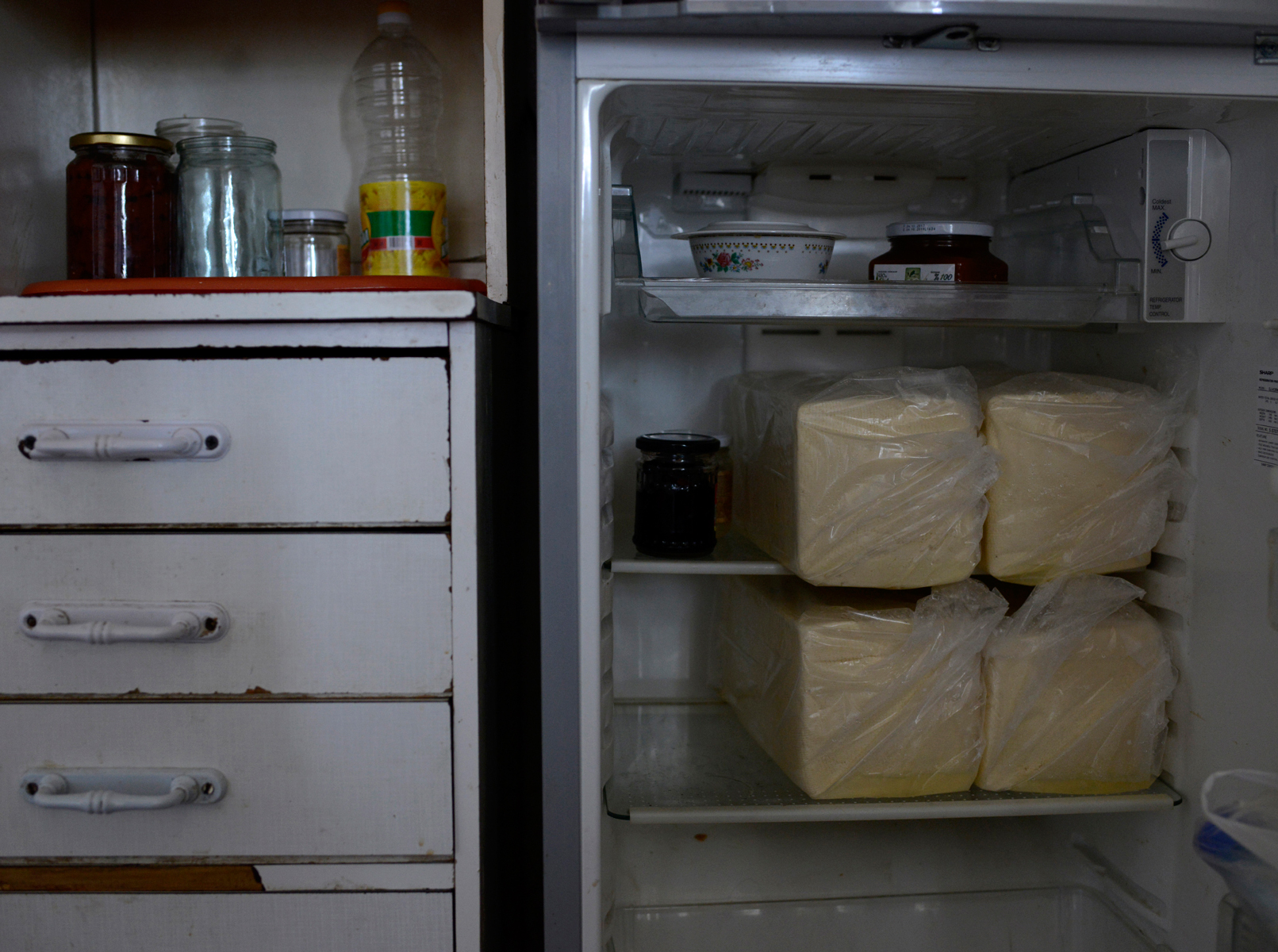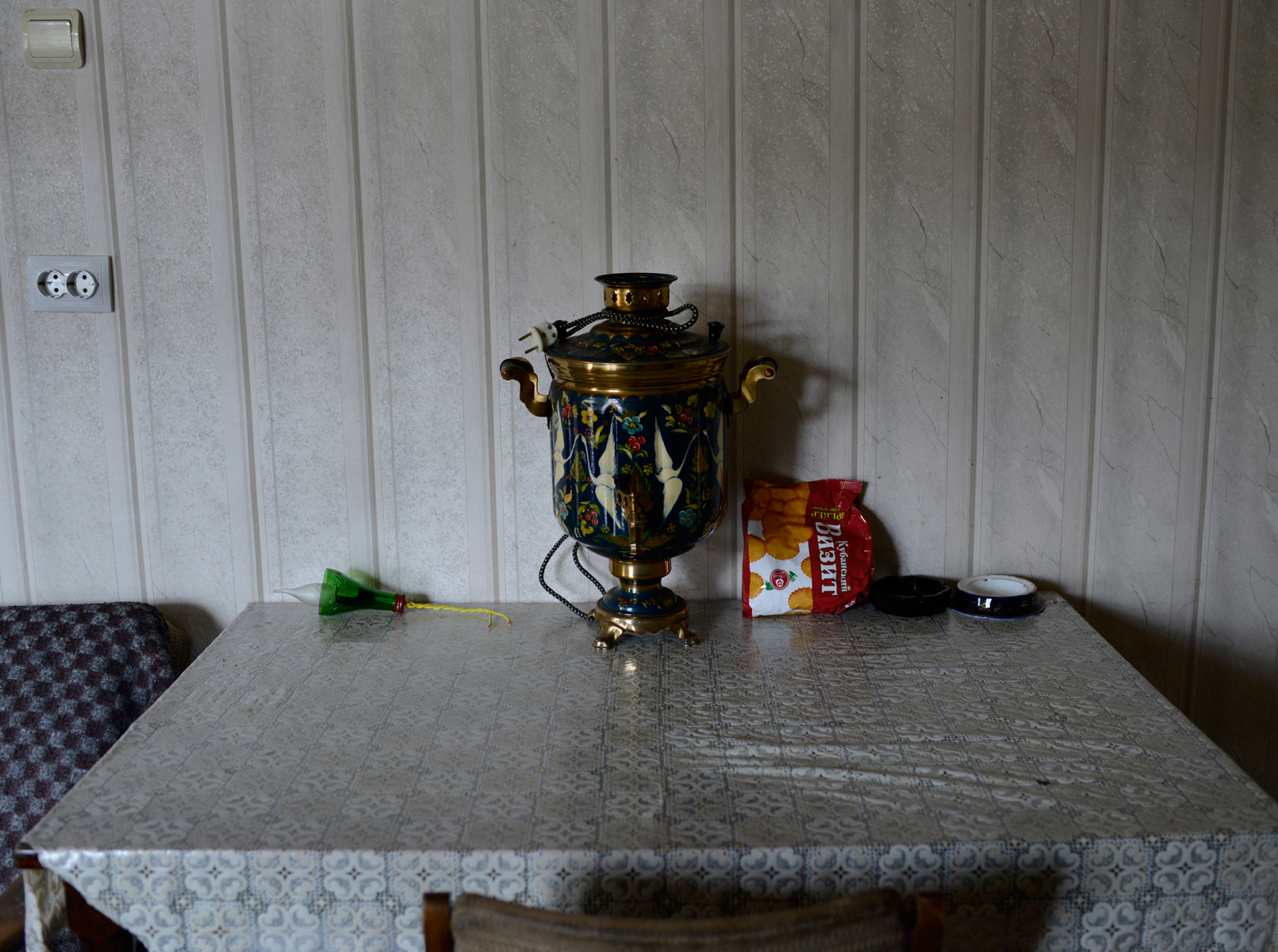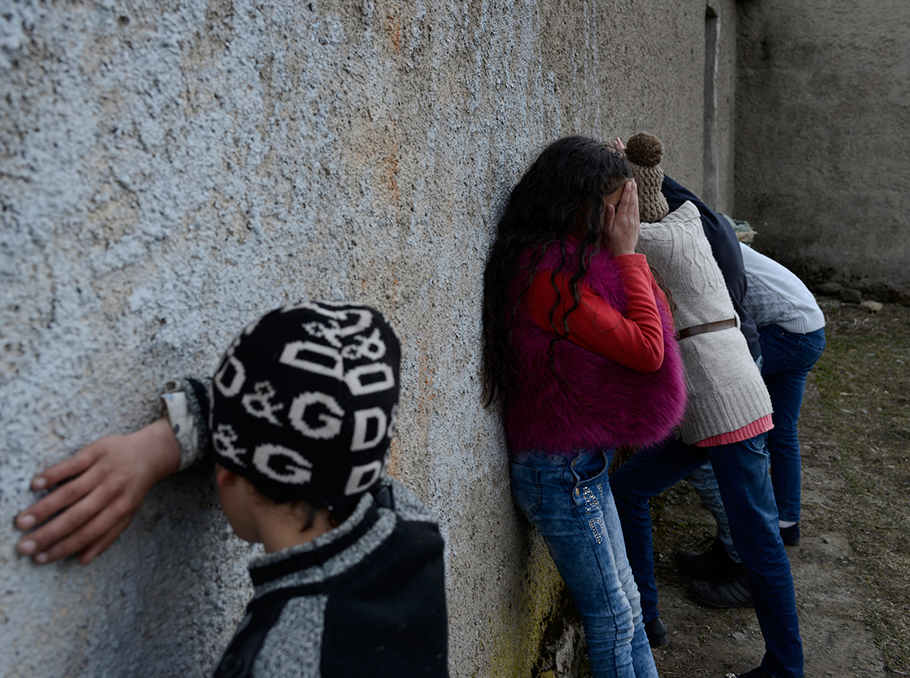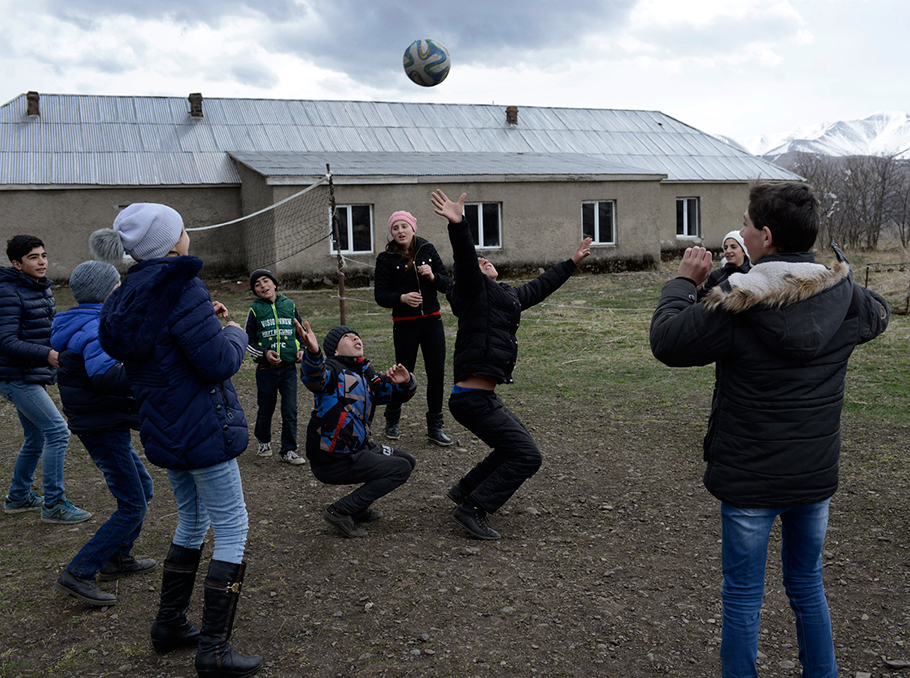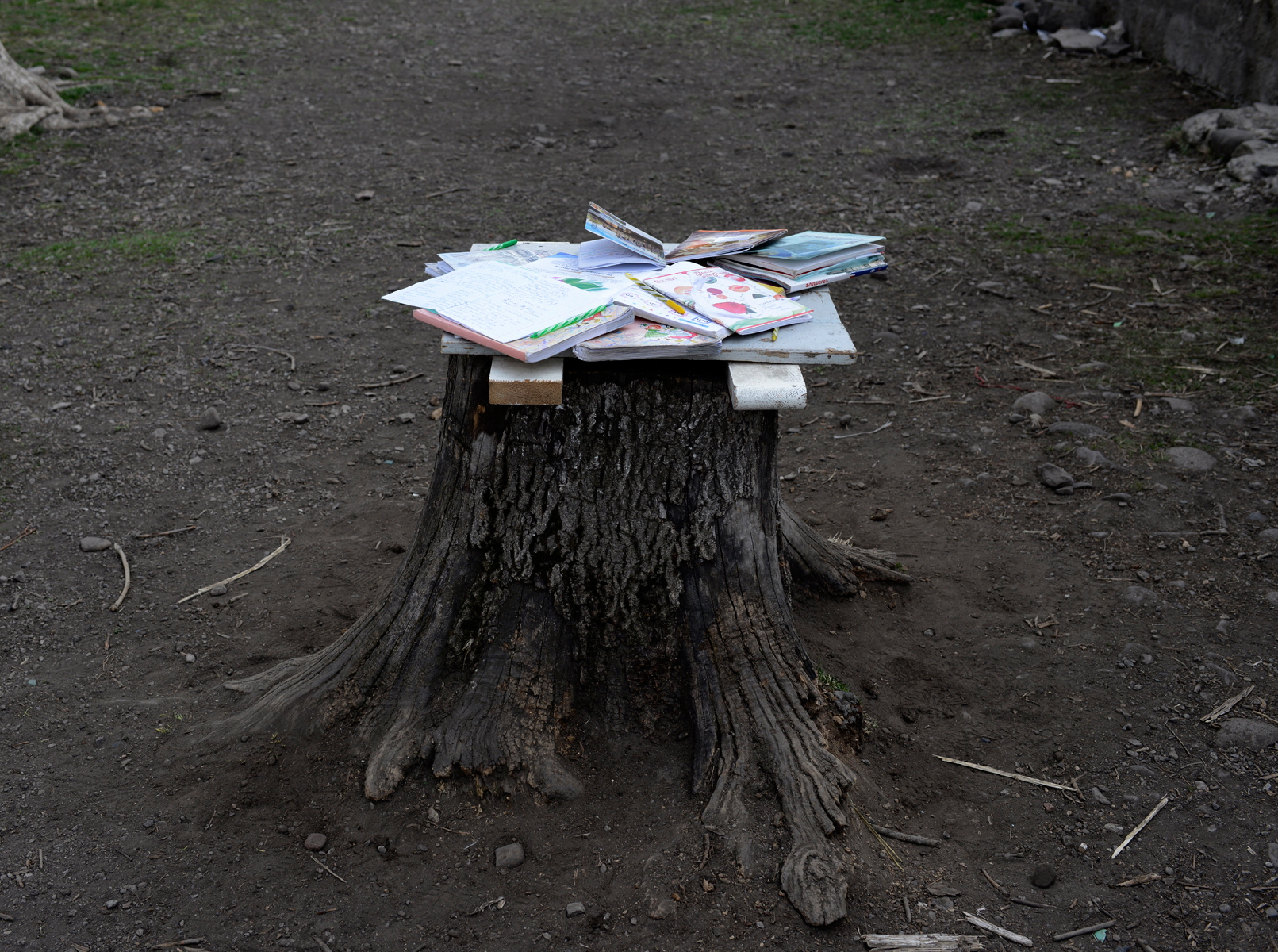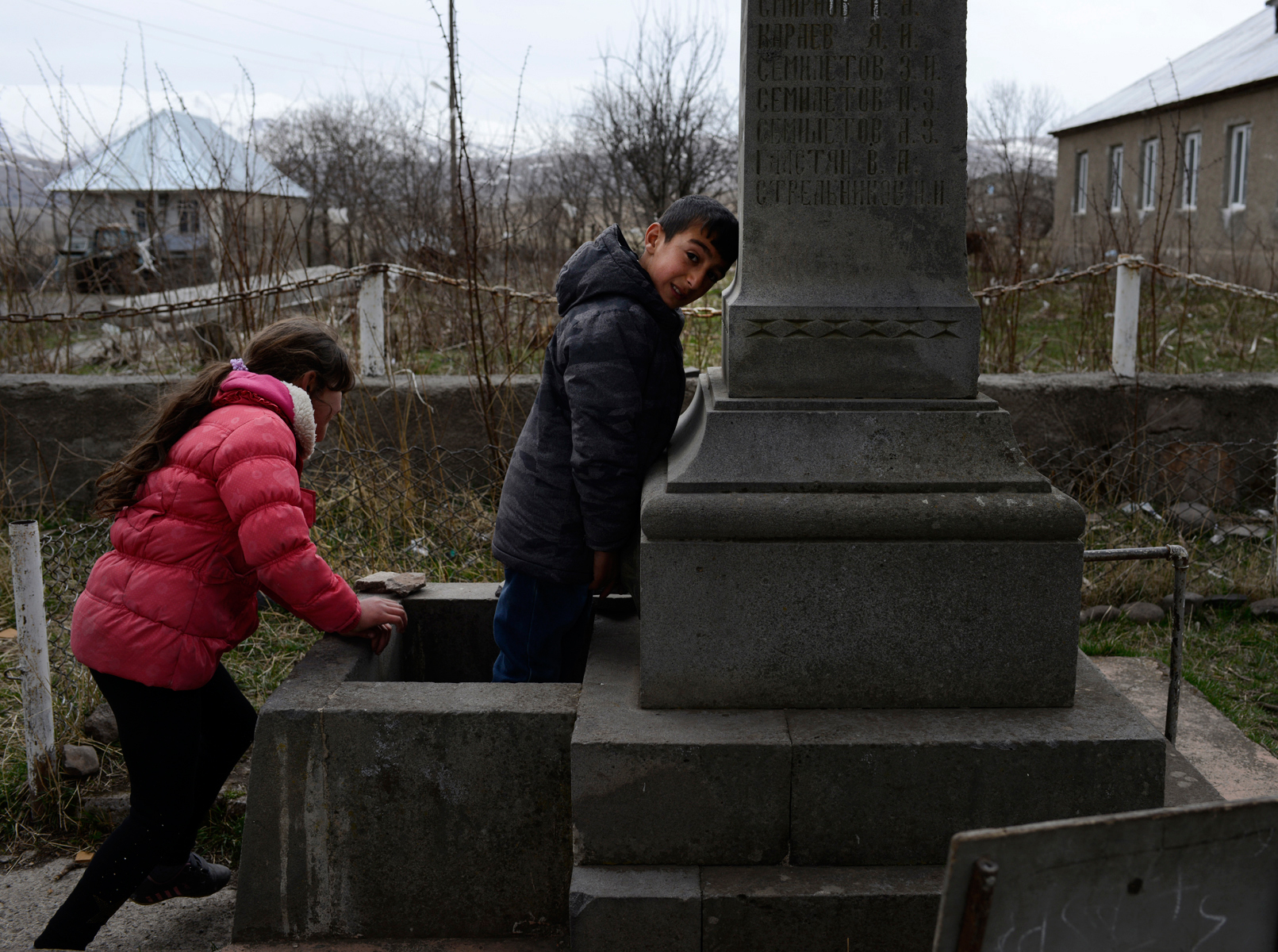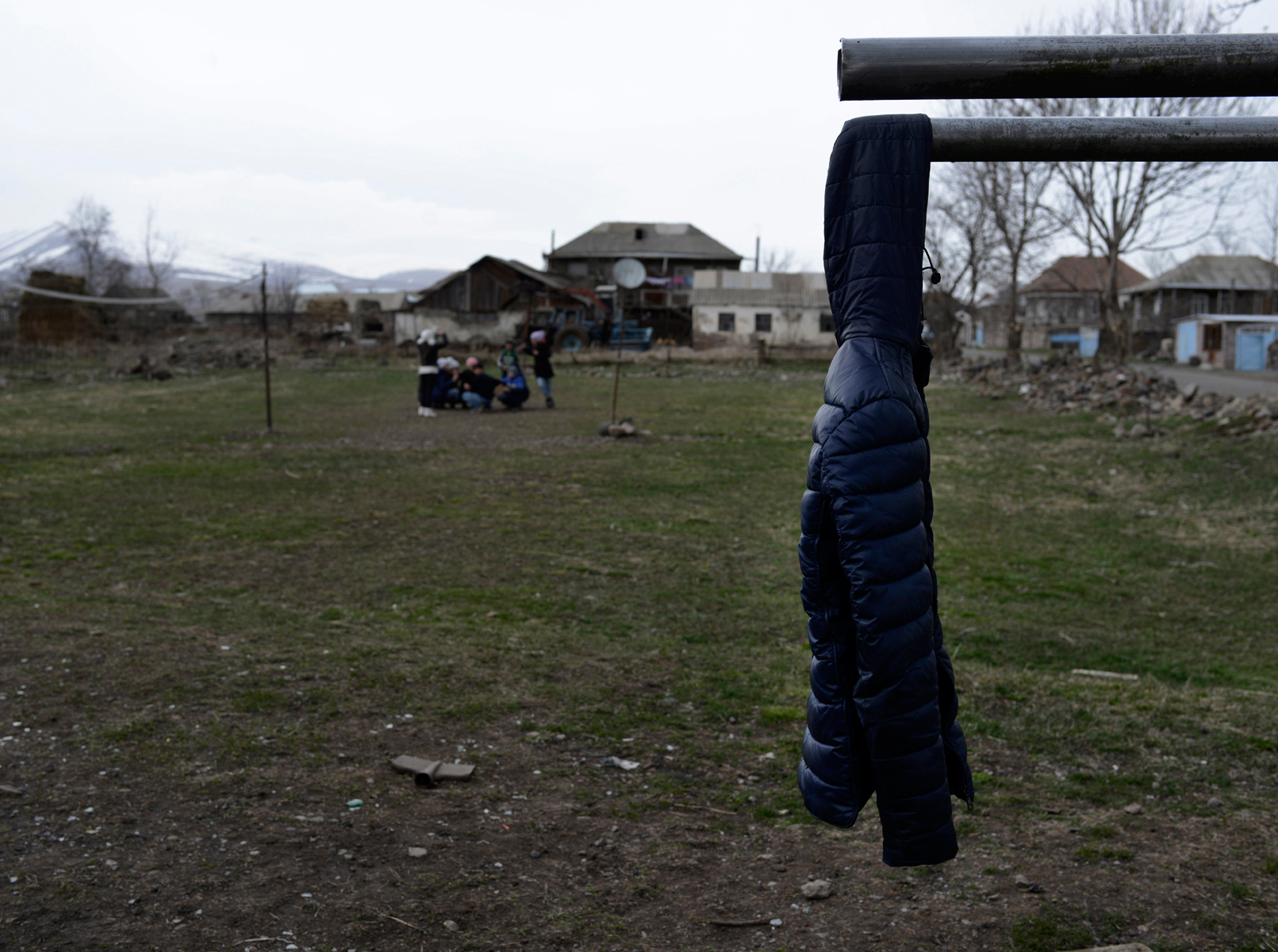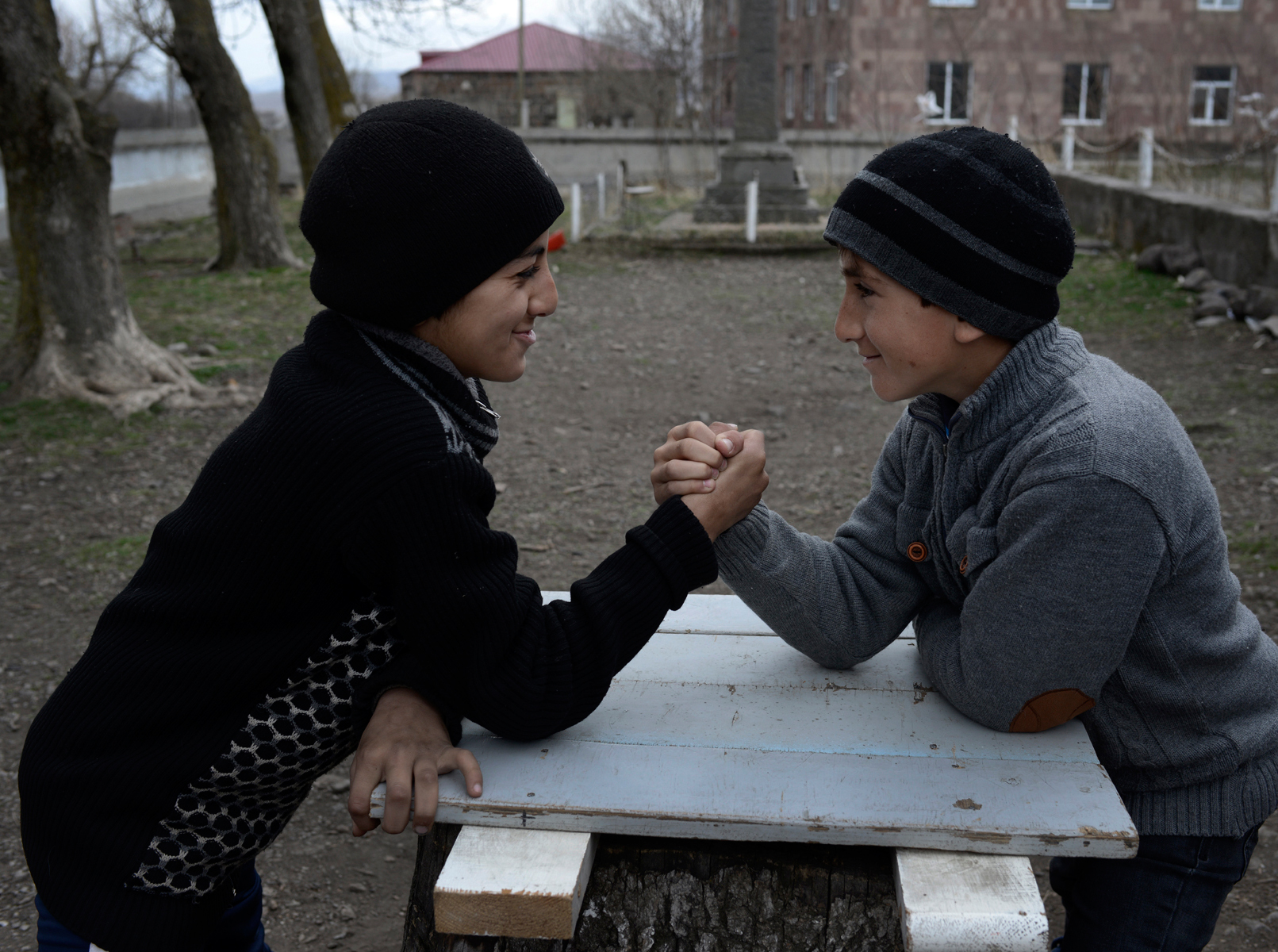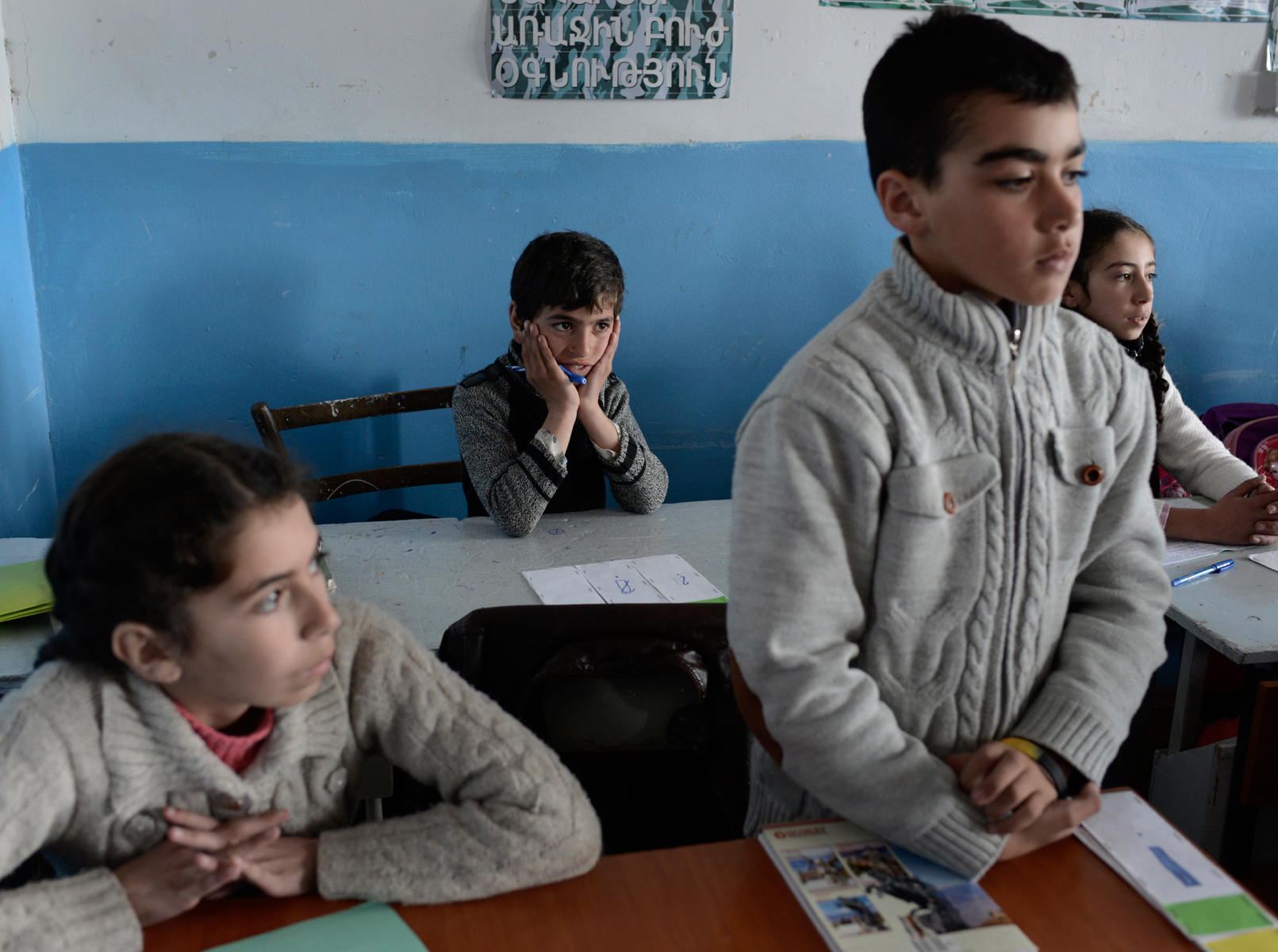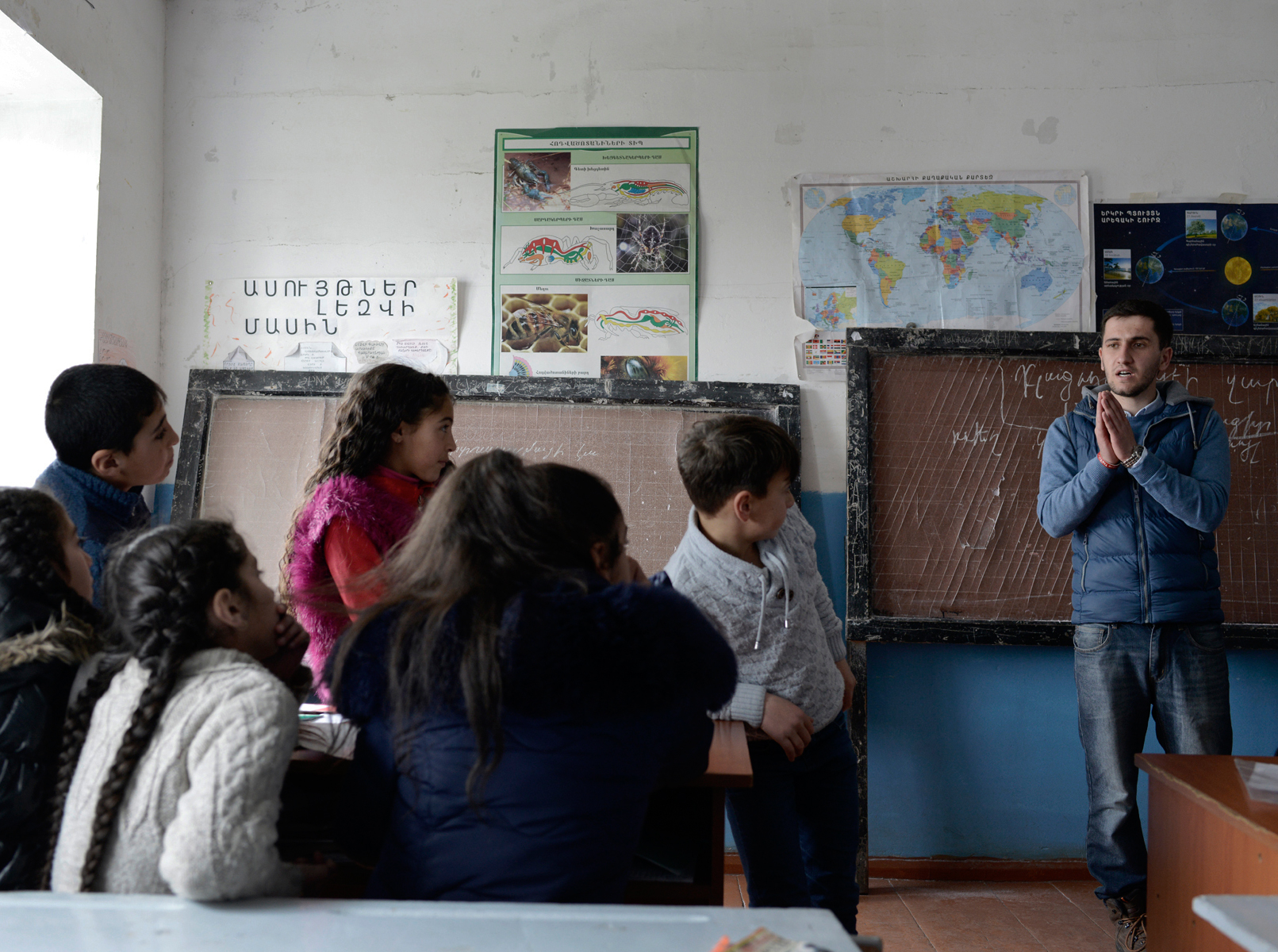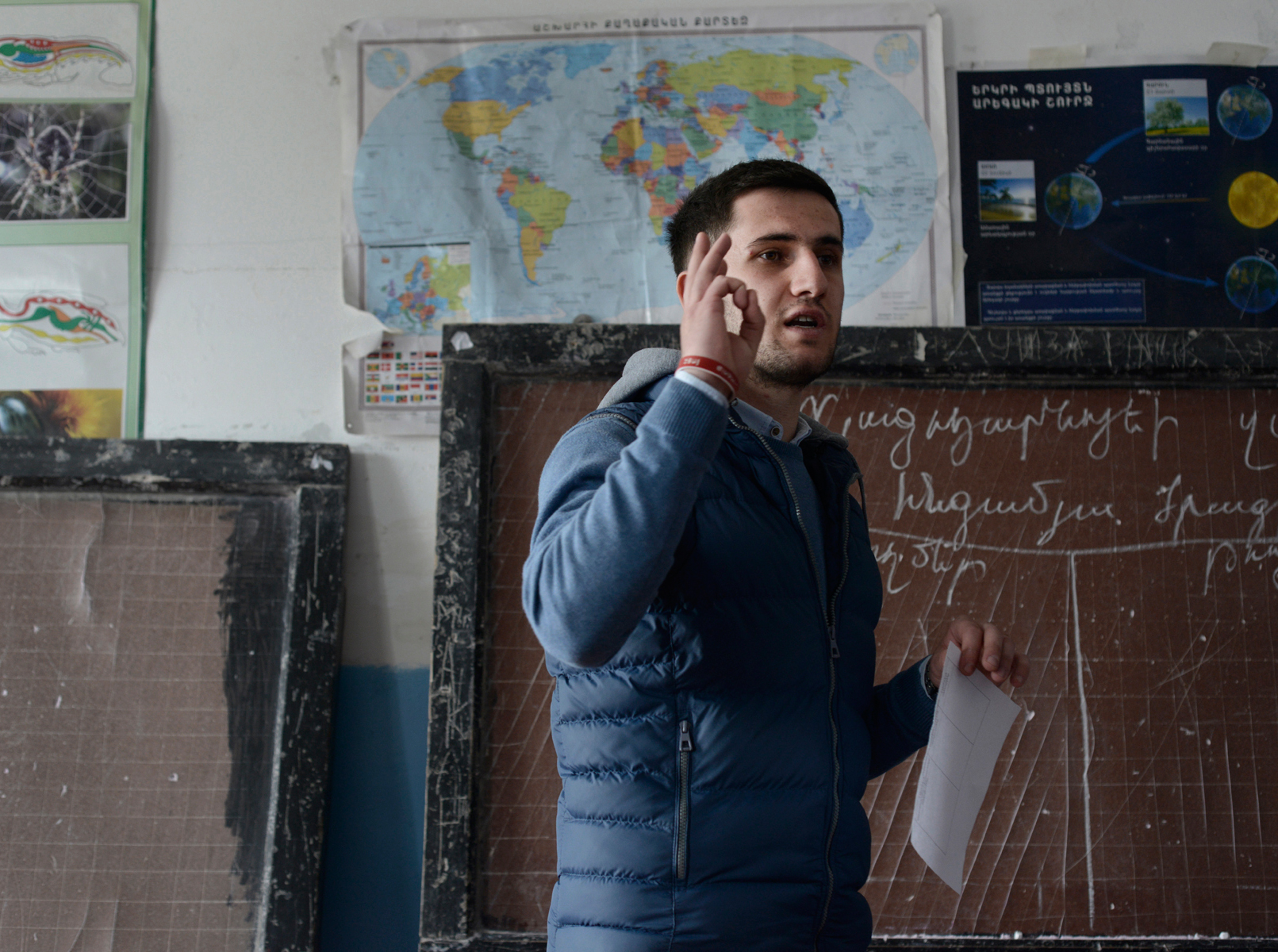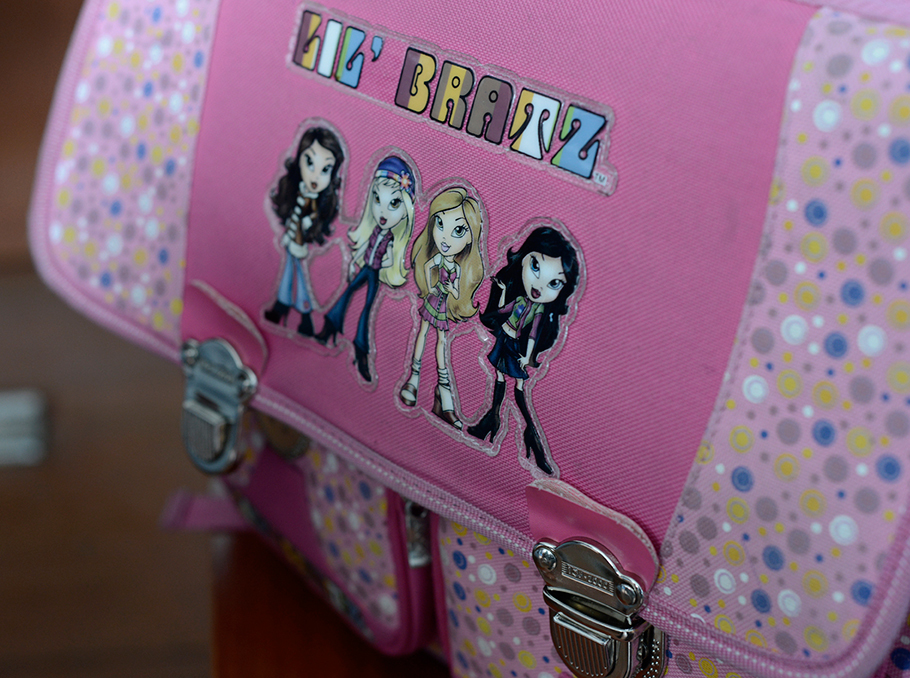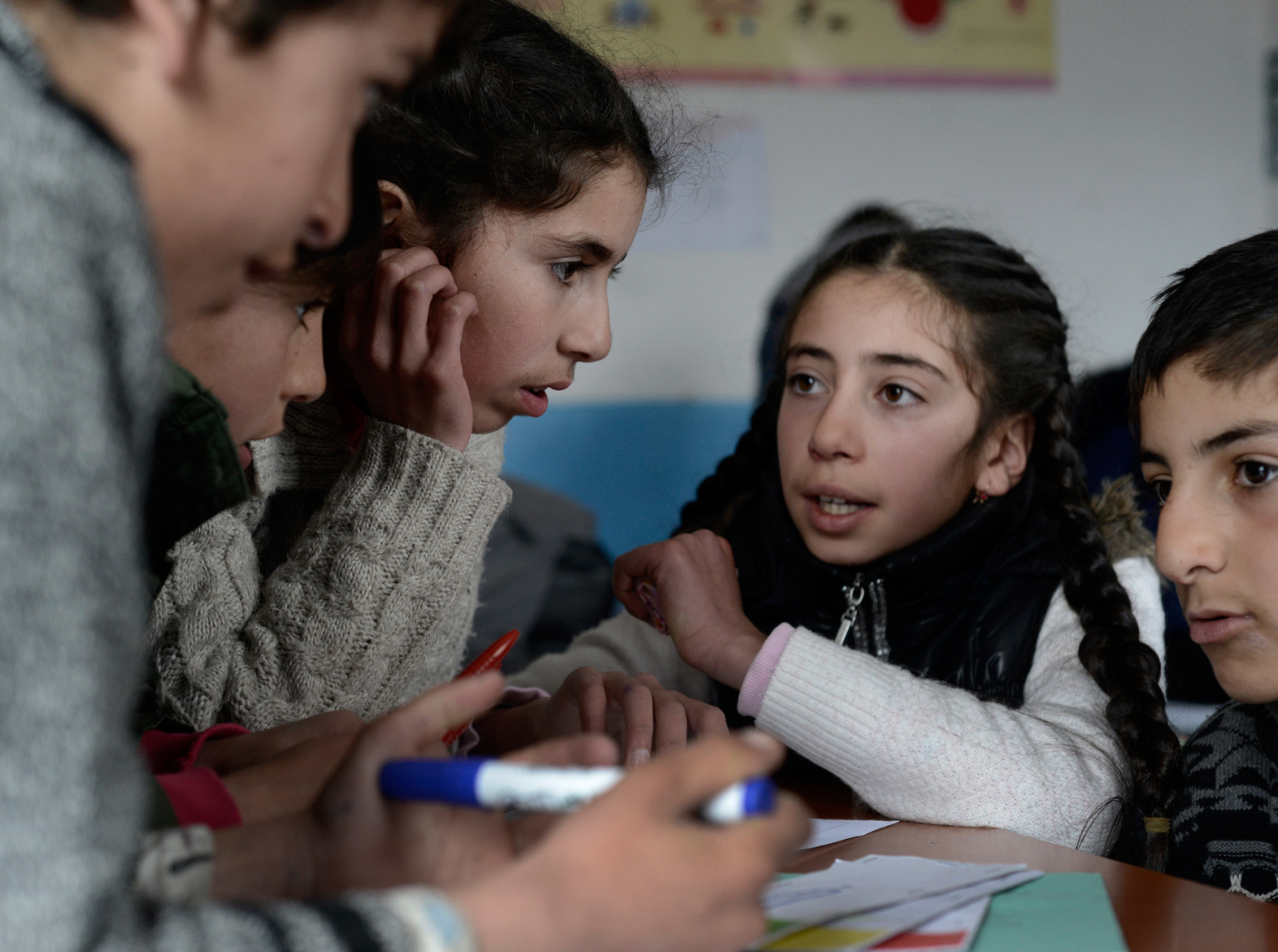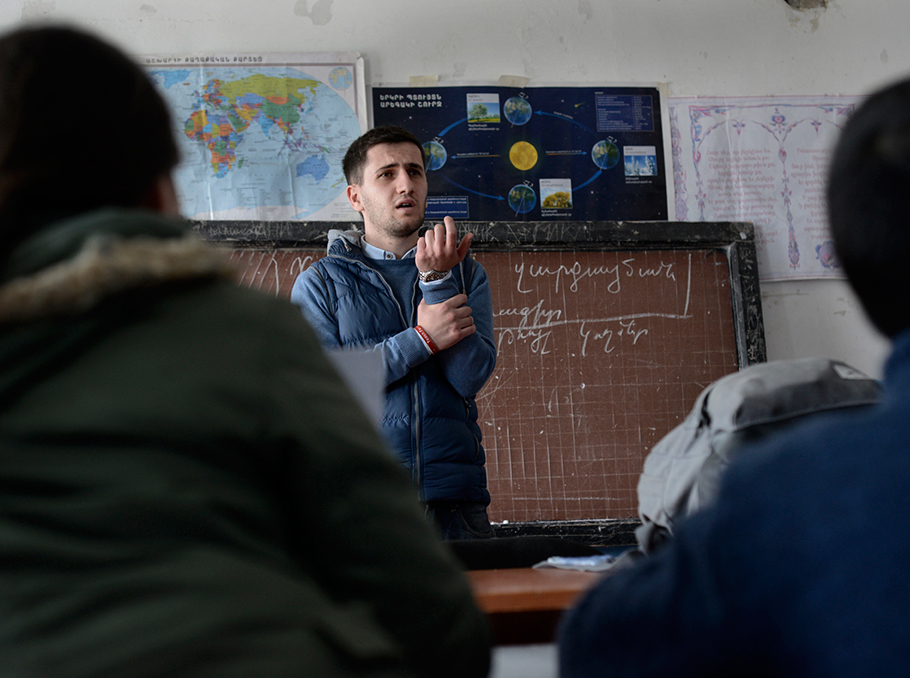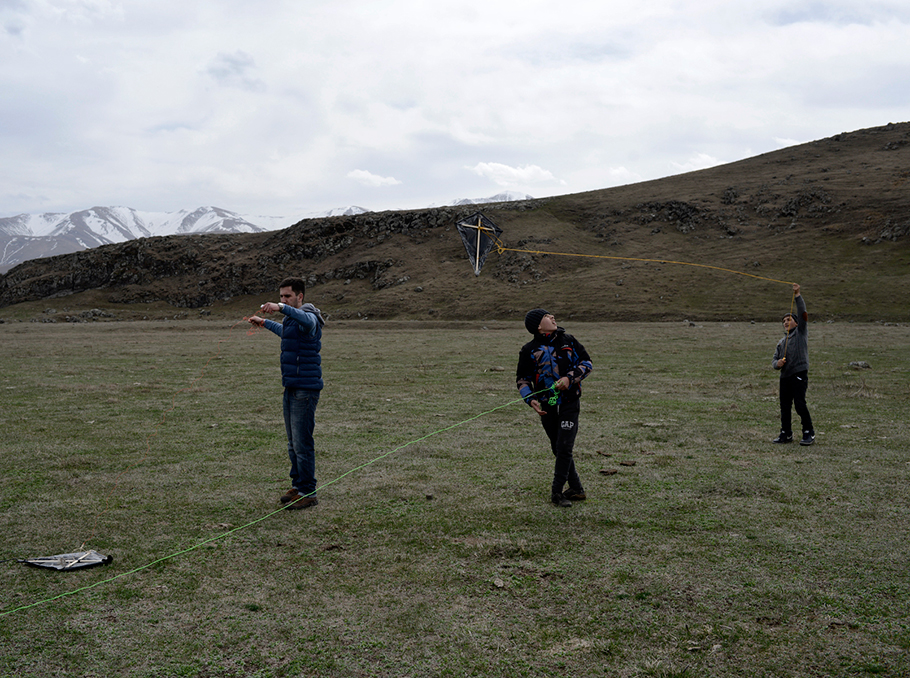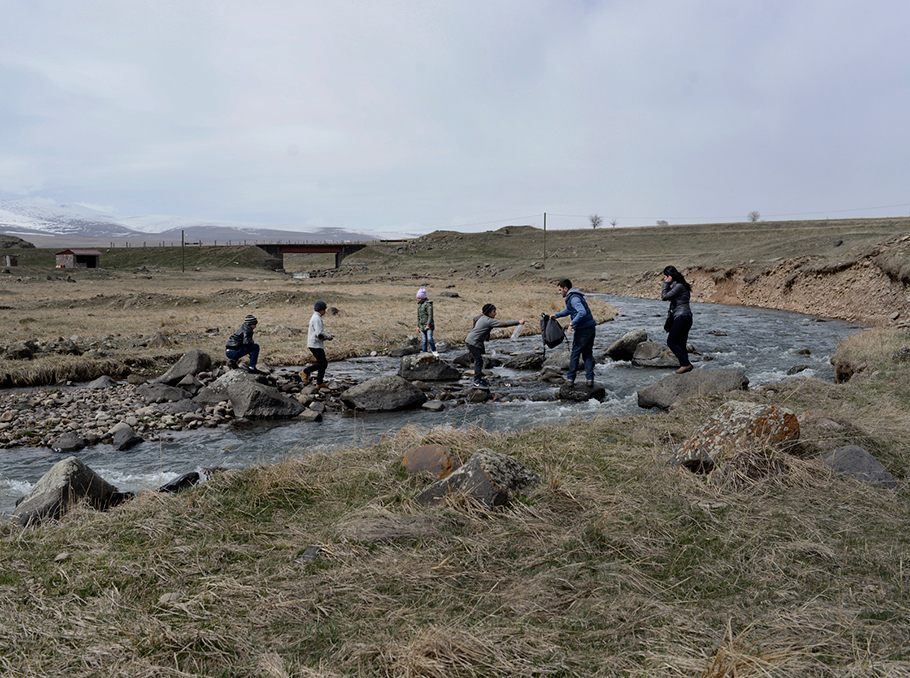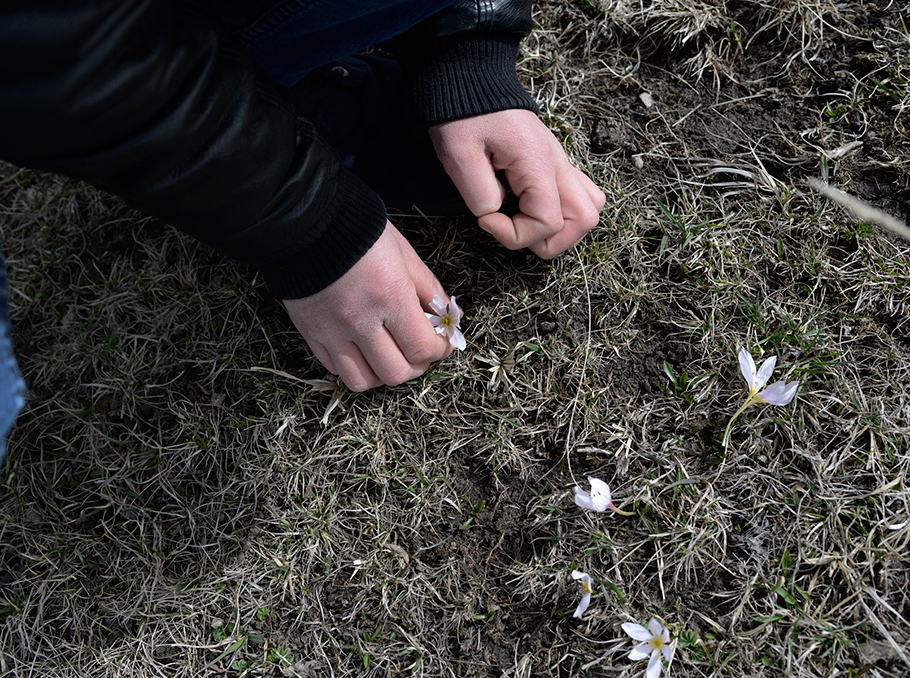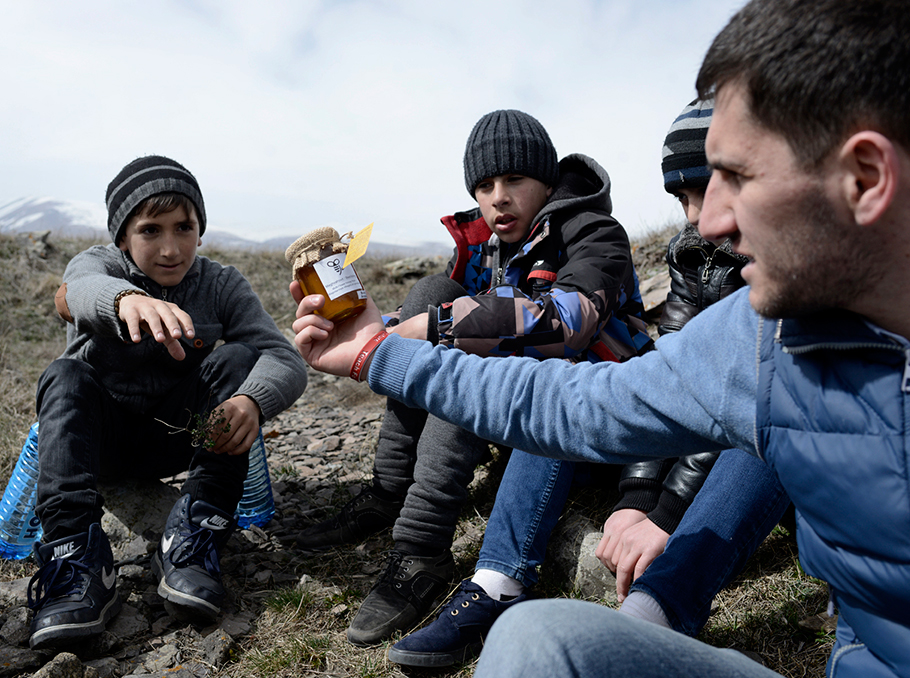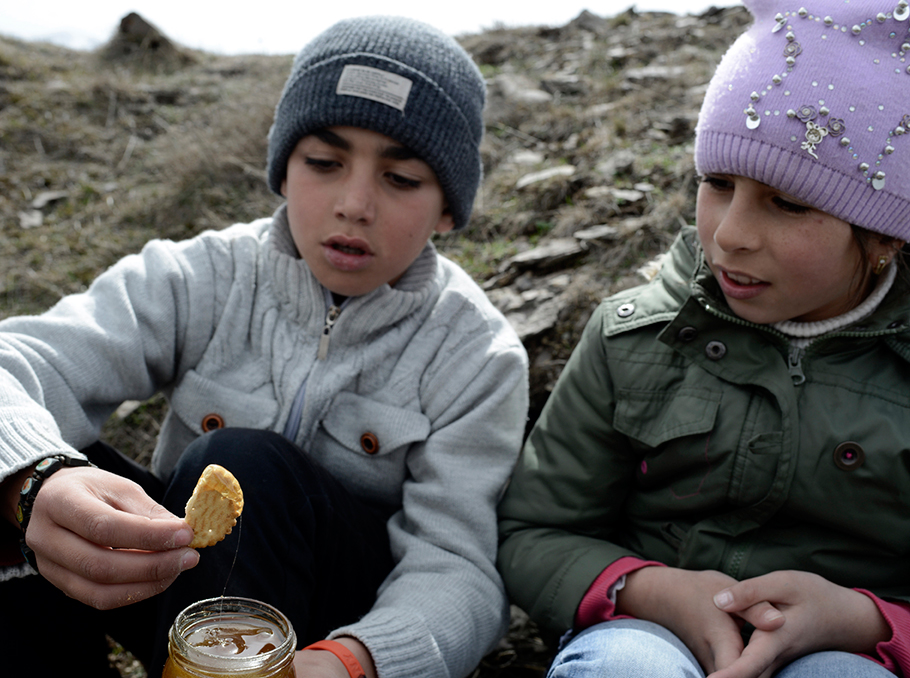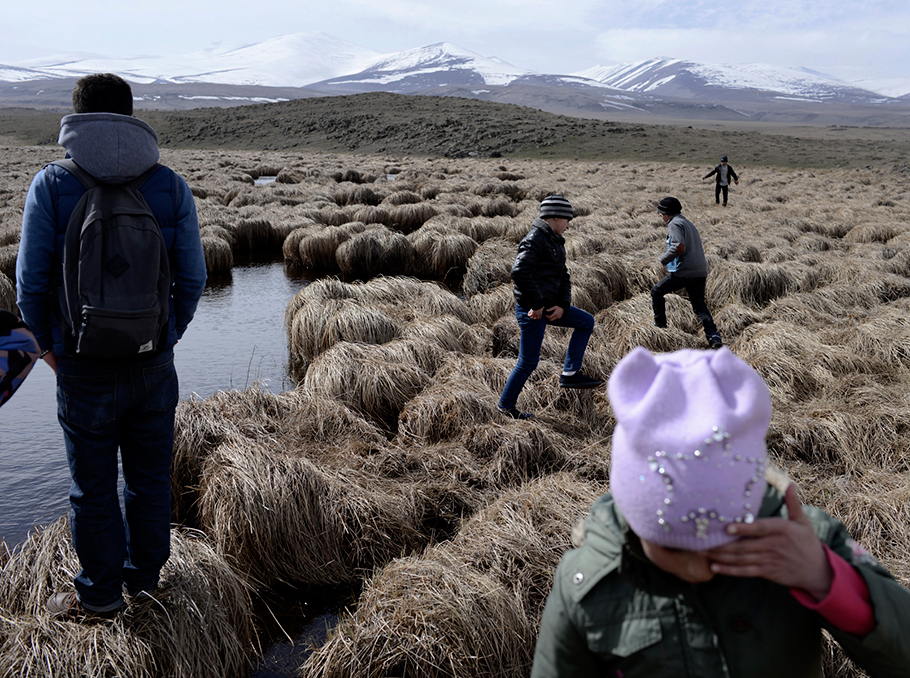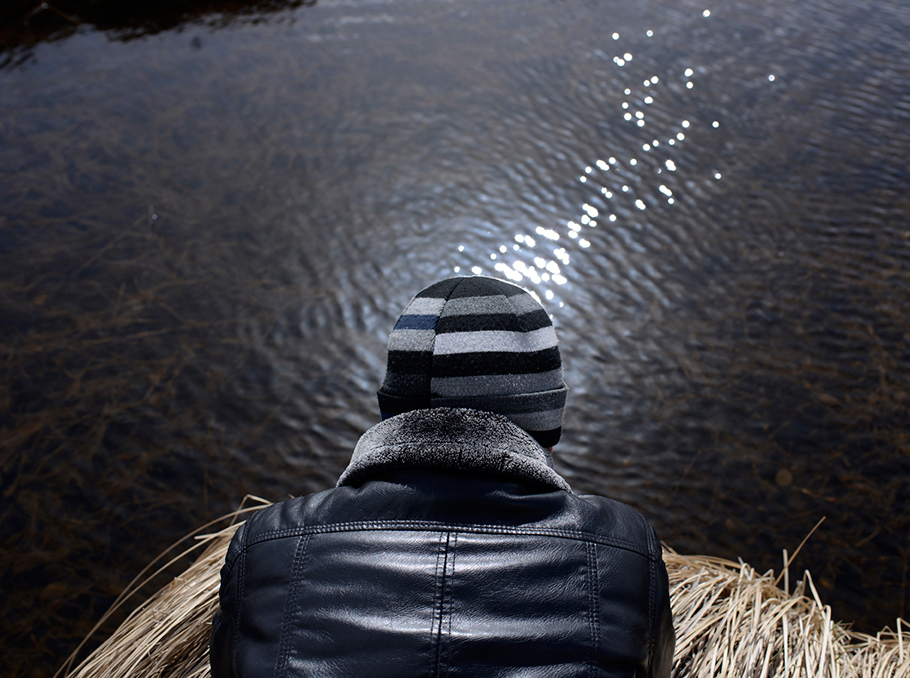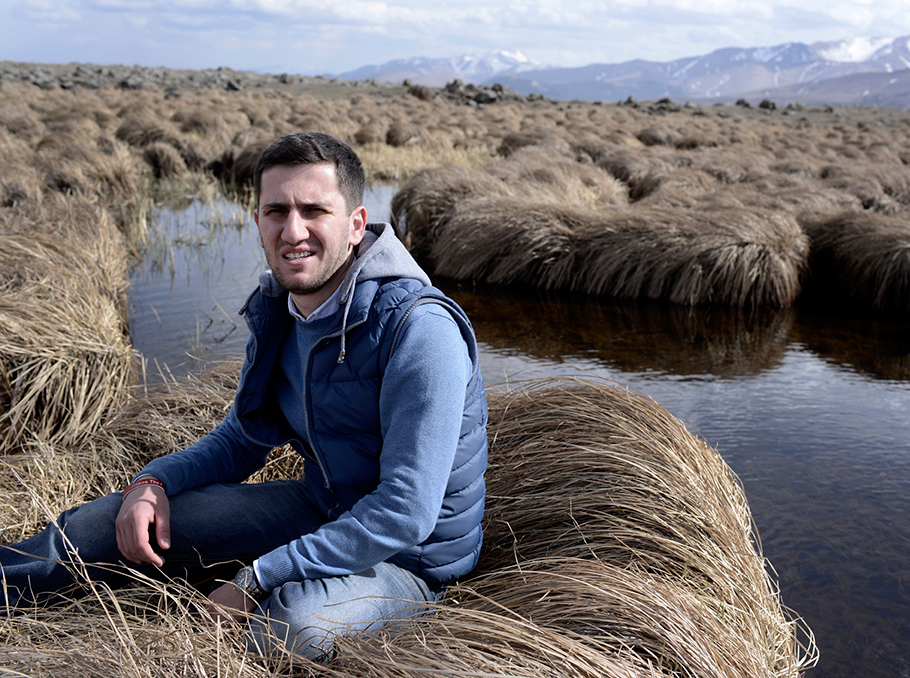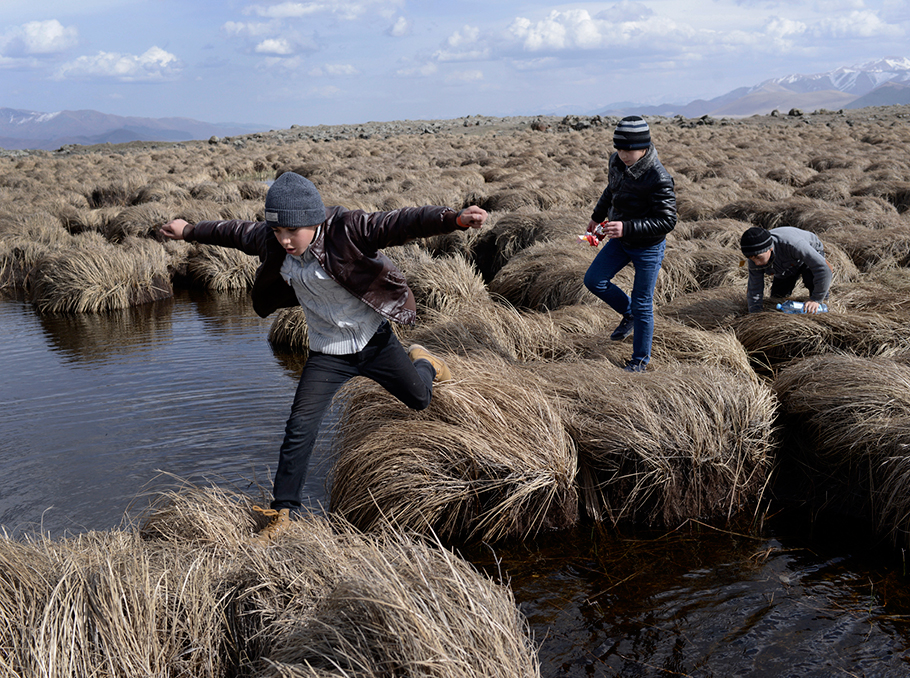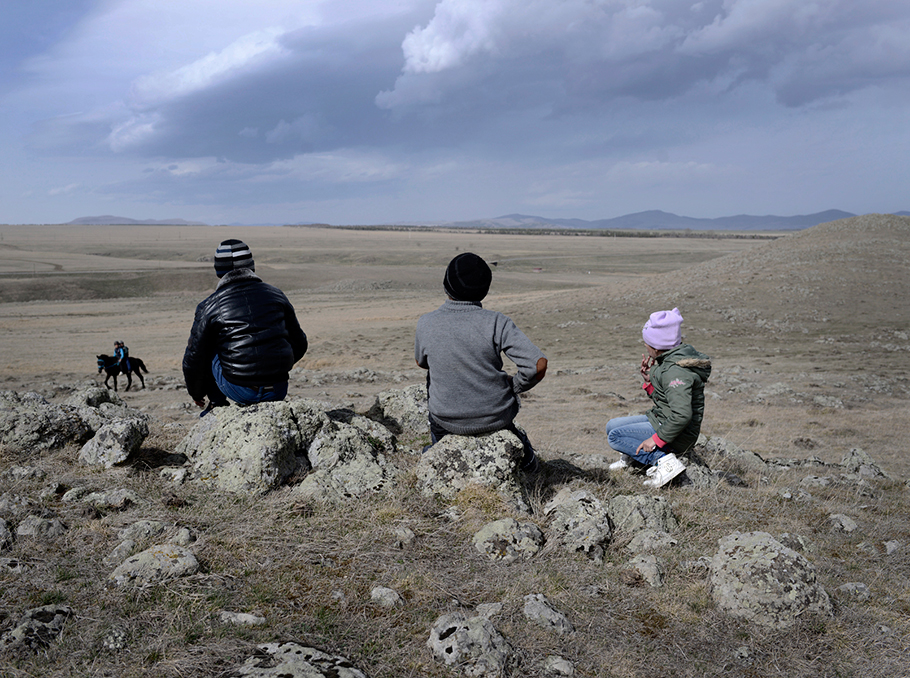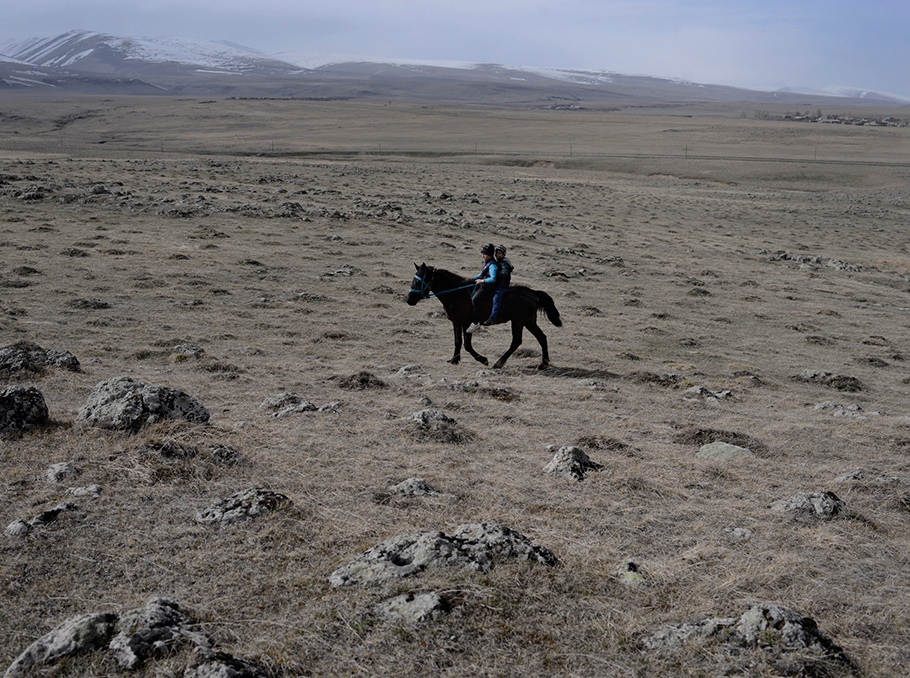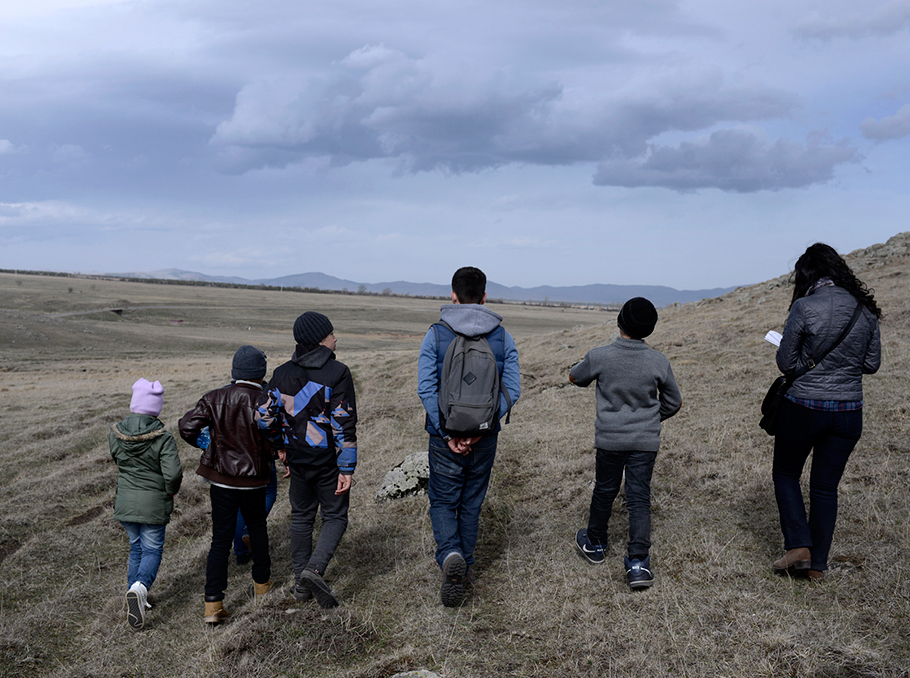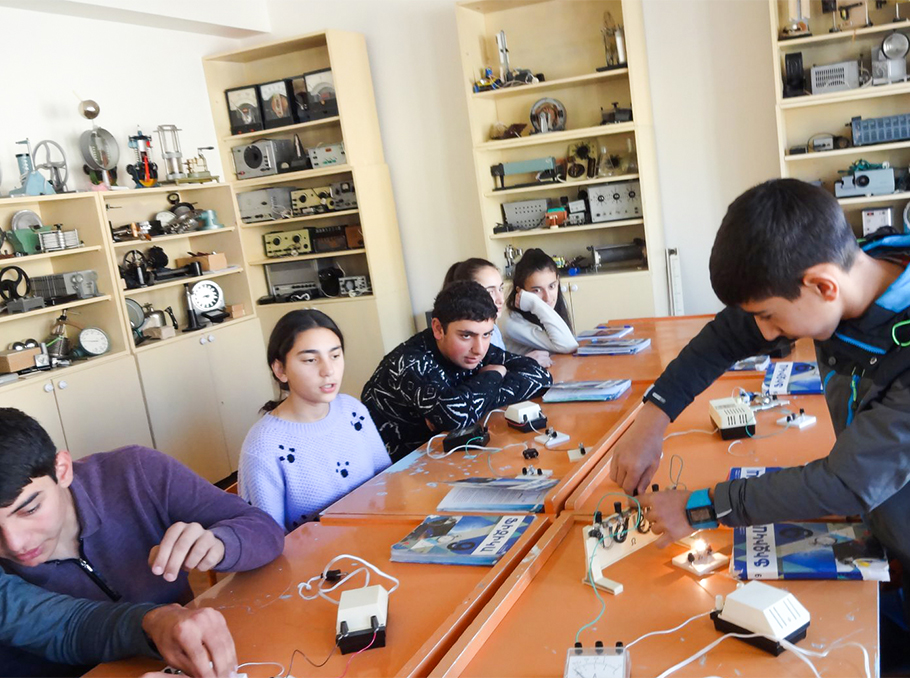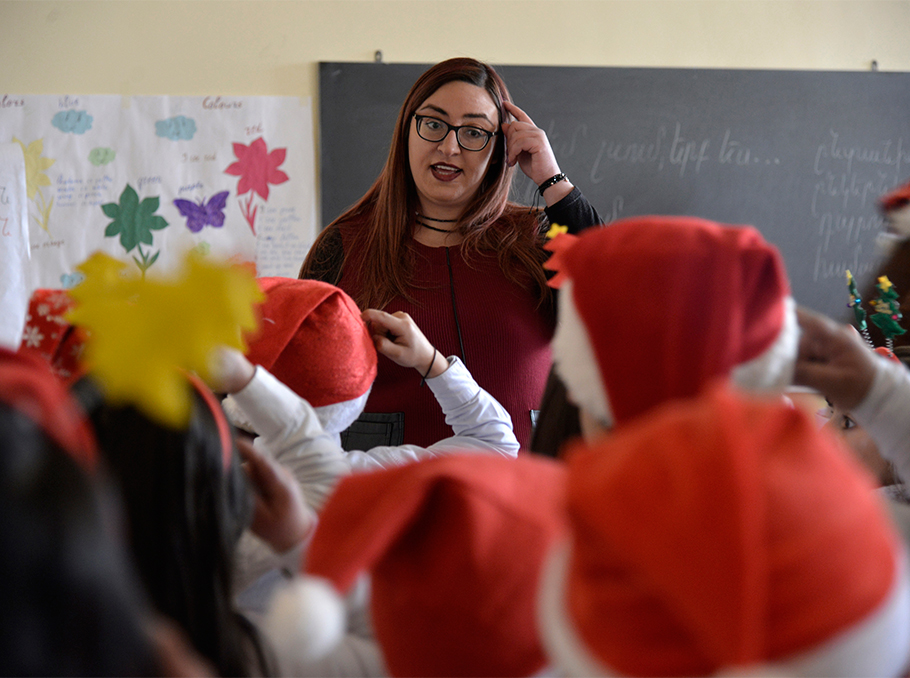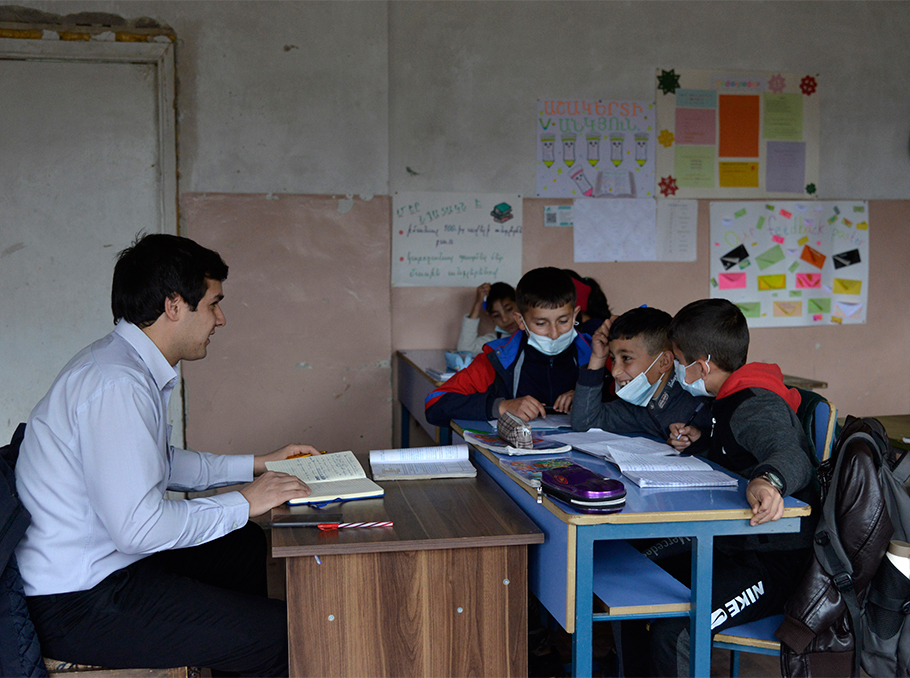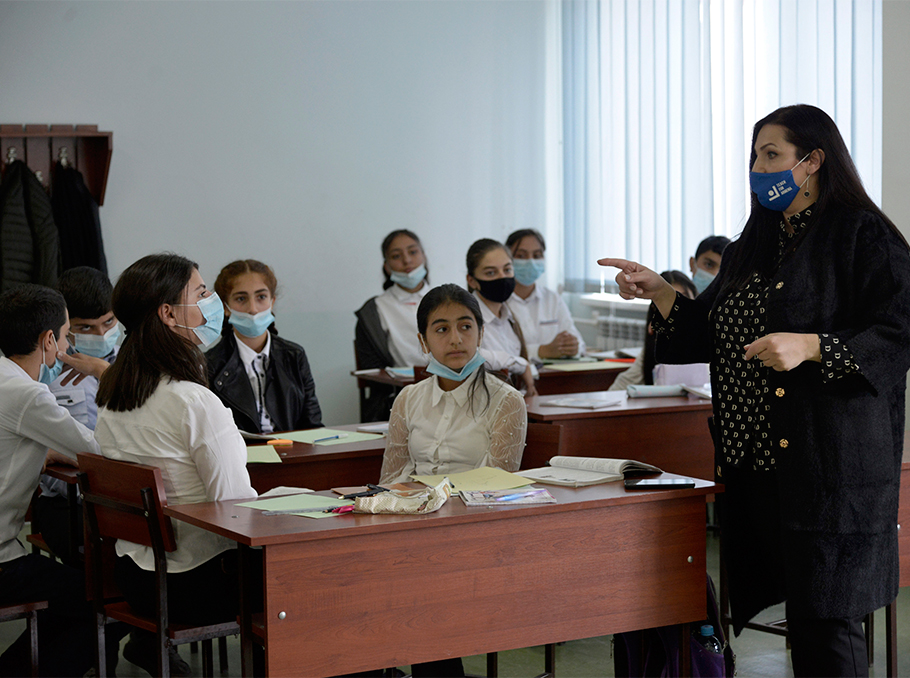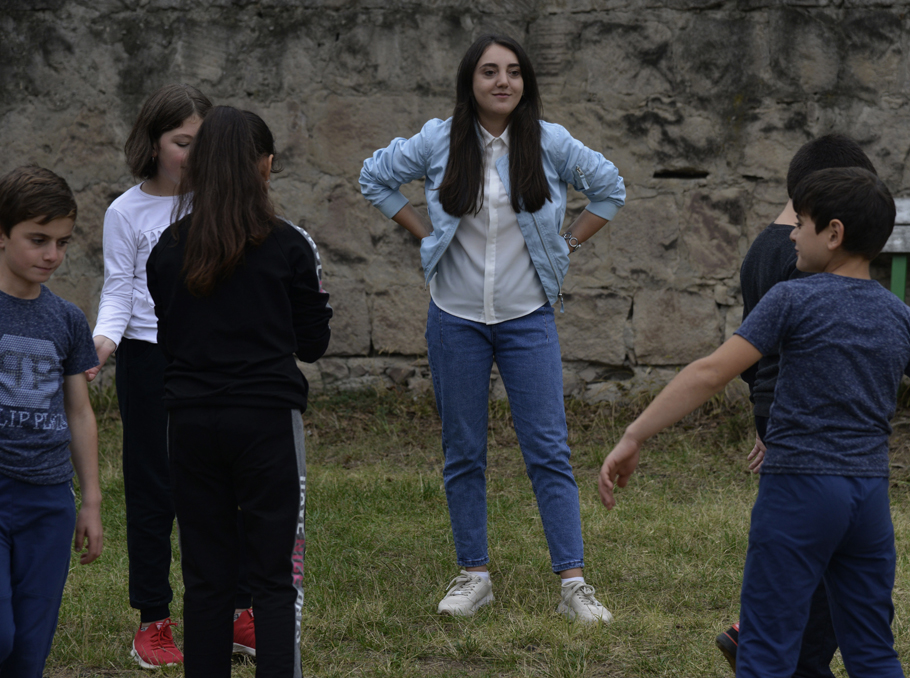Winds in the village of Blagodarnoye are very strong even during hot summers and can blow off the roofs sometimes. When adults choose to close the doors and windows to escape the wind, children go out to catch it.
“Look, it’s rising!” shouts the kid, whose kite is about to take off.
The kite is the latest achievement of children in Blagodarnoye. They had a discussion with their teacher, Rudolph Harutyunyan, and discovered that wind was not an obstacle, but an opportunity to fly a kite. They learned how to make kites on the internet. The first experience failed - the kite didn’t take off, but the kids were determined to carry on.
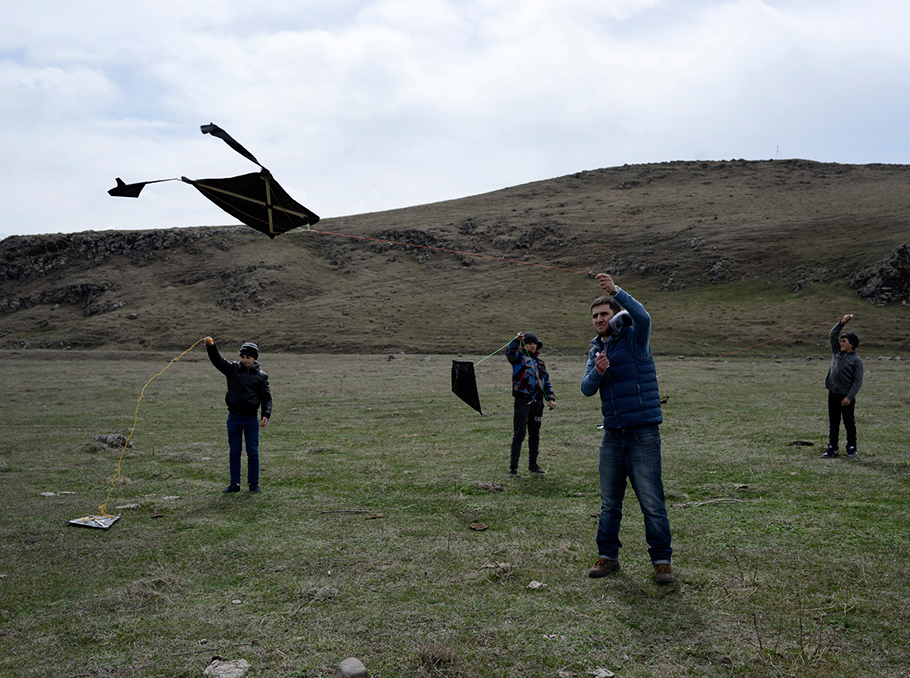
Photo: Vaghinak Ghazaryan/Mediamax
“I told children about the Wright brothers, who are credited with inventing the modern airplane. They made a hundred transformations before their first airplane managed to stay in the air for 13 seconds. The children said, “Let’s keep on trying then.” Later on I noticed that my efforts were gradually delivering results, as kids understood that failure is an inseparable part of a success,” says Rudolph Harutyunyan, who moved to Blagodarnoye almost 2 years ago within the frames of Teach For Armenia Fellowship.
Kite flying is on the agenda of business meetings in Blagodarnoye. Rudolph has taught the children how to deal with problems from a completely different perspective, which enables them to observe weak sides as potential advantages.
“We fell in love with the wind the moment Mr Harutyunyan made a kite for us,” Suzanna said.
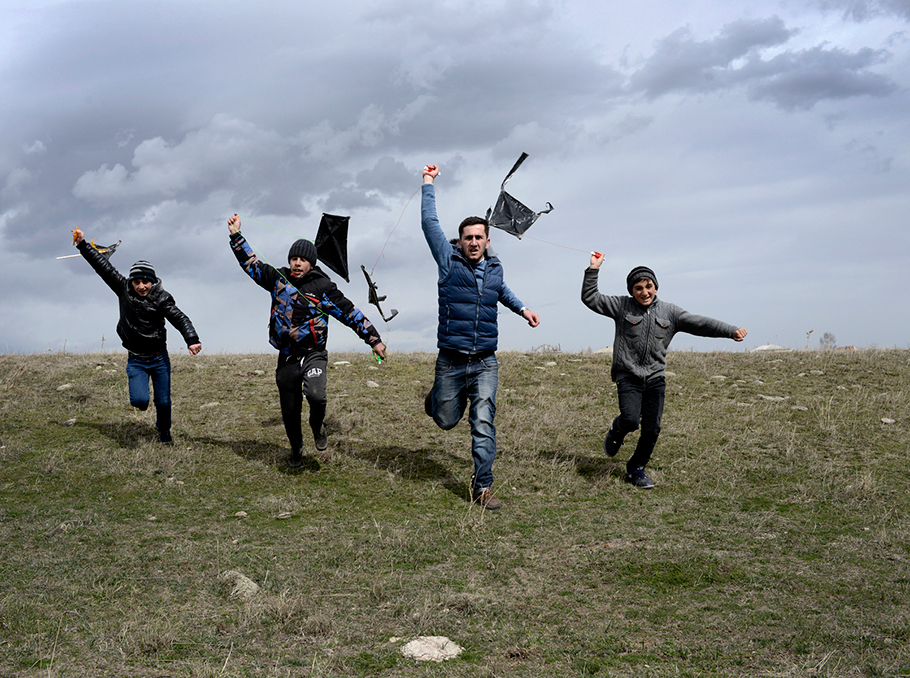
Photo: Vaghinak Ghazaryan/Mediamax
This community with population of 200 people has quite the number of issues. The students are trying to give solutions at least theoretically, without laying the responsibility on local authorities or adults. Another meeting of the business club is dedicated to elaboration of a 5-year development program for the village. They define strengths and weaknesses of the community and then try to find ways to benefit even from problems.
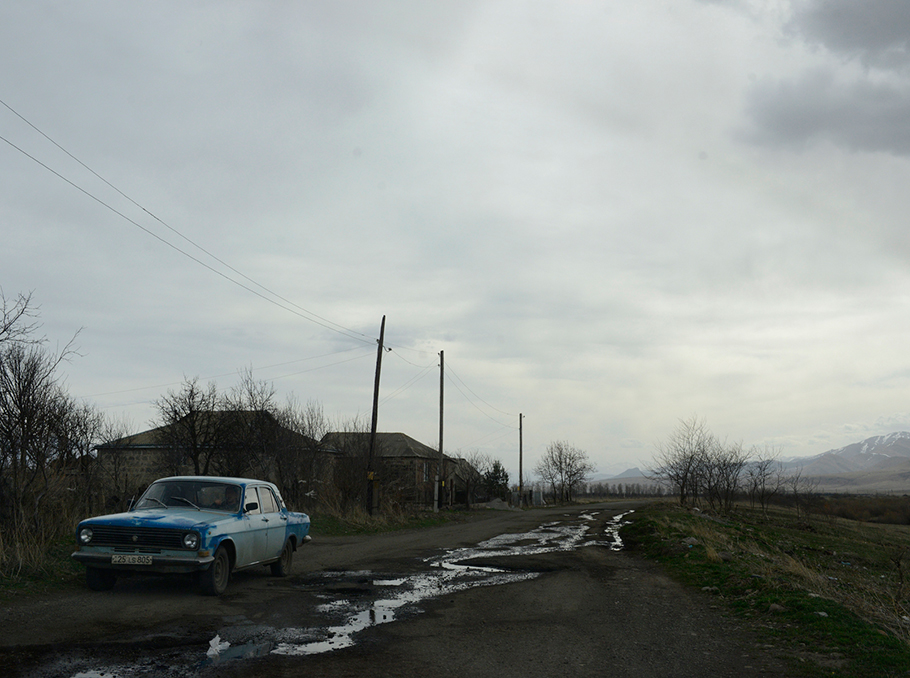
Photo: Vaghinak Ghazaryan/Mediamax
“Many people are afraid of damaging their cars, so they avoid visiting our village. We decided to take the helm and become drivers. Firstly, we will provide someone with a job and secondly, the village will have transportation, which will help us organize tours for the visitors. If they get tired and decide to take a break, we will offer them food; we will open a shop here,” a group of students present their ideas after several minutes of discussions.
“Why do we need to develop the village? We will grow up and move to cities,” a girl from another group asks with a cunning smile. This is a question she has been asked before and probably, she had already got the answer.
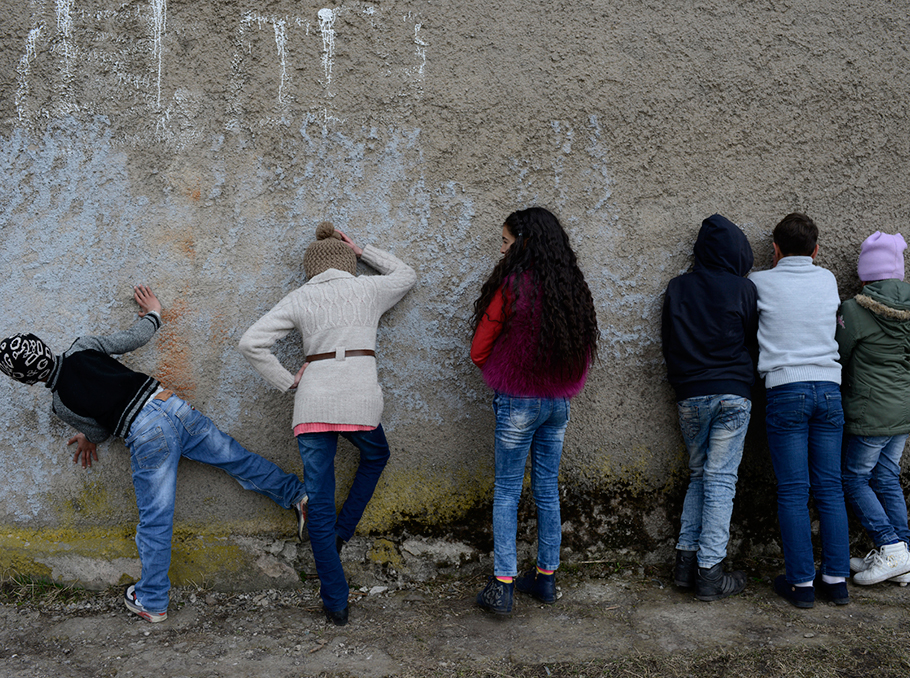
Photo: Vaghinak Ghazaryan/Mediamax
“But what about other people? When we grow up and move to big cities, some people will still live here. We can work and create conditions not only for ourselves but for them too.” “We will find good jobs in cities, then come back and develop our village,” they answer, adding to each other’s ideas.
The team has implemented community development programs step by step. Two years earlier, when Rudolph moved to Blagodarnoye, or as he puts it, Thankful village (“Blagodarnoye” means “thankful” in Russian-Mediamax), he started a business club along with teaching 5 subjects (History of Armenia, World History, History of the Armenian Church, Armenian Studies, and Social Science). He intends to not only provide children with academic knowledge, but also raise their social awareness, help them believe in their strength and eventually take action.
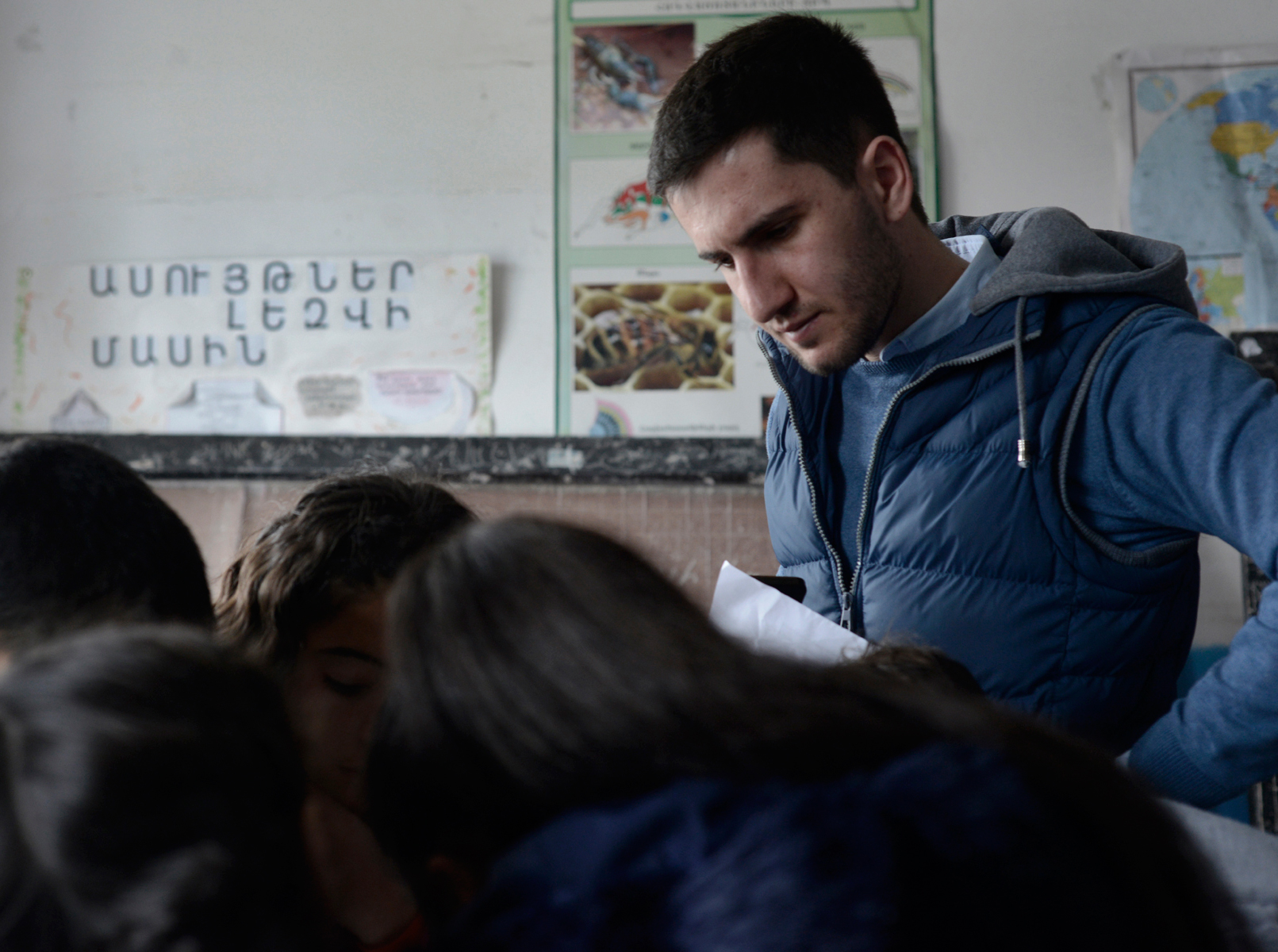
Photo: Vaghinak Ghazaryan/Mediamax
“We started with small projects. One day we were walking around the village and suddenly we noticed a lot of paper rubbish everywhere. The kids said, “Just look at the dirt! Who could have done this?” I suggested them to take advantage of the situation and collect the waste paper, sell it and solve an issue at the school. The children agreed. We collected 20kg paper on the first day, for which we got only AMD 1000, but still we were able to buy a trash can for the classroom. This motivated children so much that by selling rubbish we were able to buy chalk boxes, maps and classroom supplies.
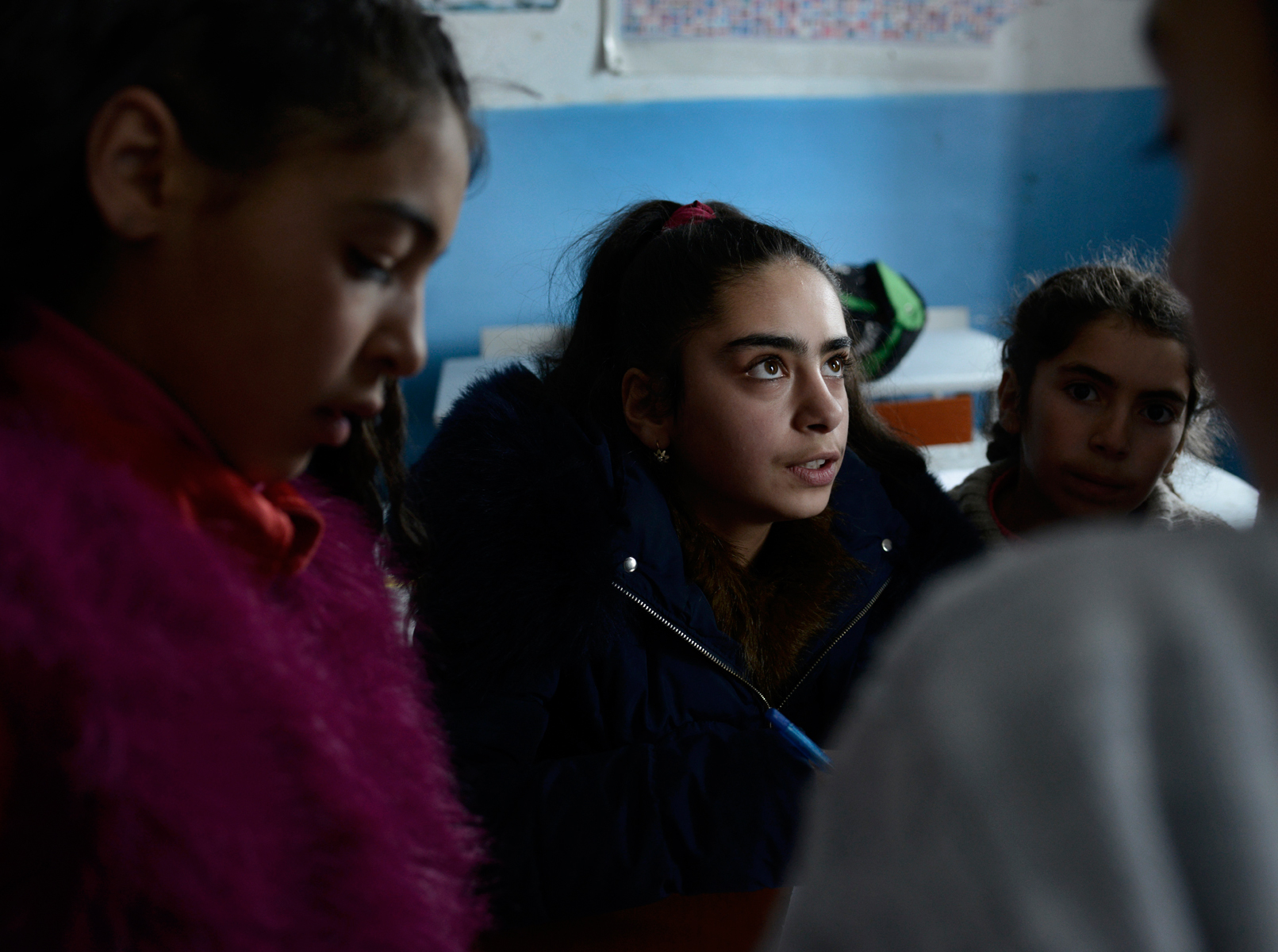
Photo: Vaghinak Ghazaryan/Mediamax
Children couldn’t believe they could earn money by disposing of waste paper. Their motivation grew, as they saw tangible changes in the classroom. Building a bridge between the teacher and students is essential and can be achieved only through mutual trust. It’s inspiring to see how trust strengthens when we decide to do something together and actually do it.”
Rudolph is convinced that children start to care only when they actively participate in common activities and take the responsibility. To have permanent programs, we need to involve more kids.
Upon their own initiative, boys from the combined class of grades 5 & 6 made a football field near the school a few days ago. One of them brought metal tubes, the other provided the net and working tools, and the third one engaged his friends in the process.
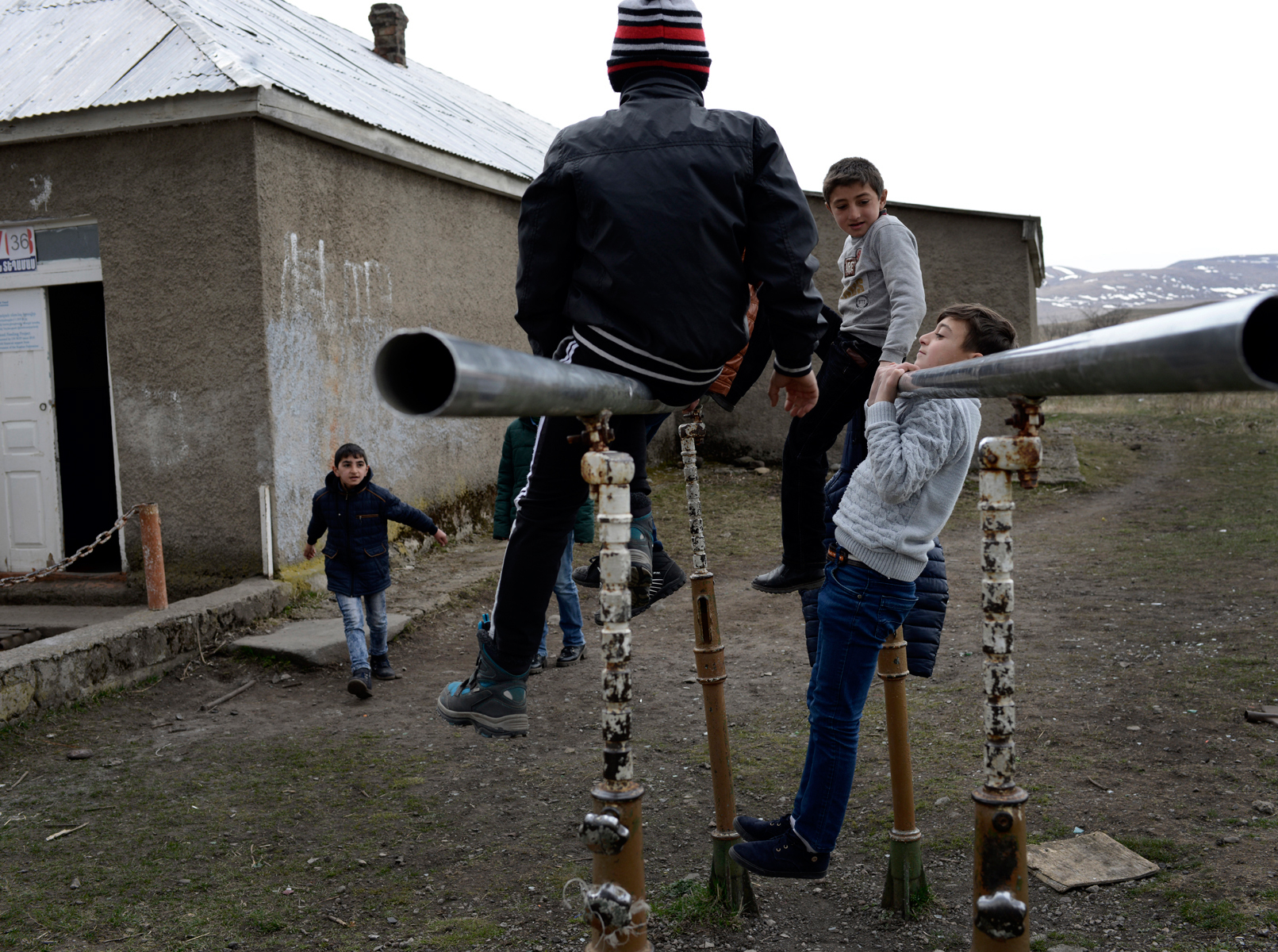
Photo: Vaghinak Ghazaryan/Mediamax
“Whenever we played football, we didn’t know where lines were supposed to be or whether the ball went out or not. We decided to make our own football field. Why would we bother the adults? They have their own worries, while we only needed their permission. We don’t wait for others to solve our issues,” the boys tell. Two of them, Armen and Artur have decided to become footballers.
Inspired by the new football field, the students made a basketball backboard and fixed it to the tree. An arm-wrestling table was the next achievement. The children say they were planning to install a swing, but they didn’t get the permission, as the parents decided it was not worth the trouble because of the danger of falling off.
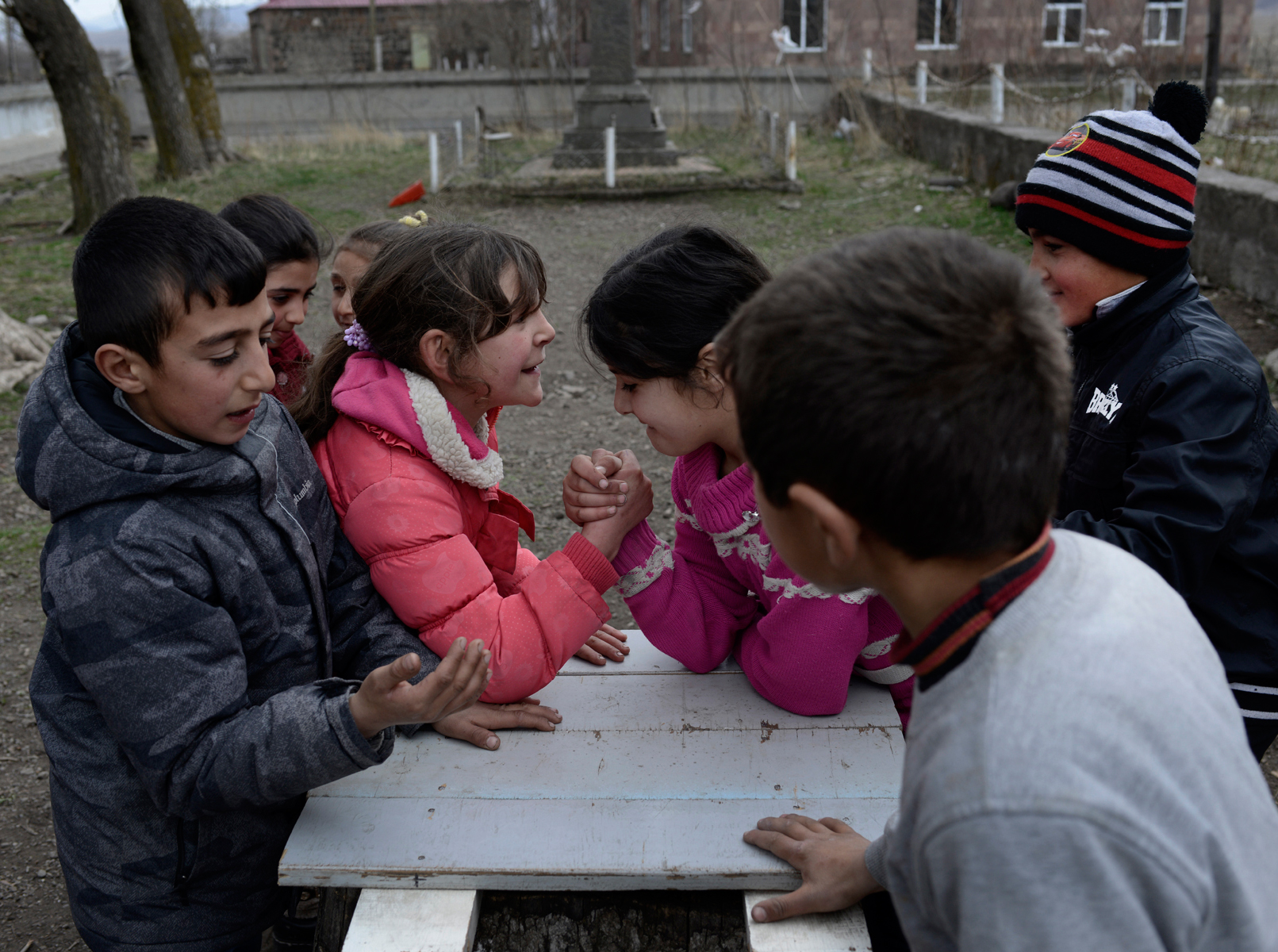
Photo: Vaghinak Ghazaryan/Mediamax
Armen says that getting acquainted with Mr Harutyunyan helped him “think straight”, set goals and try to achieve them.
“They didn’t think of making a football field until they met Mr Harutyunyan. In my view, the idea wouldn’t even have come to them,” Suzanna joins in the conversation. “And I would like to plant a small garden near our monument. I will probably do it in summer, so that it doesn’t clash with my studies. I have already taken a book on how to plant trees and what fertilizers to use.”
Rudolph says it is important that children ask themselves a very simple question: “How do we imagine Blagodarnoye 5 years from now?” Then they need to take steps to bring their projects into reality. In fact, he has found a new way of motivating his students and their parents.
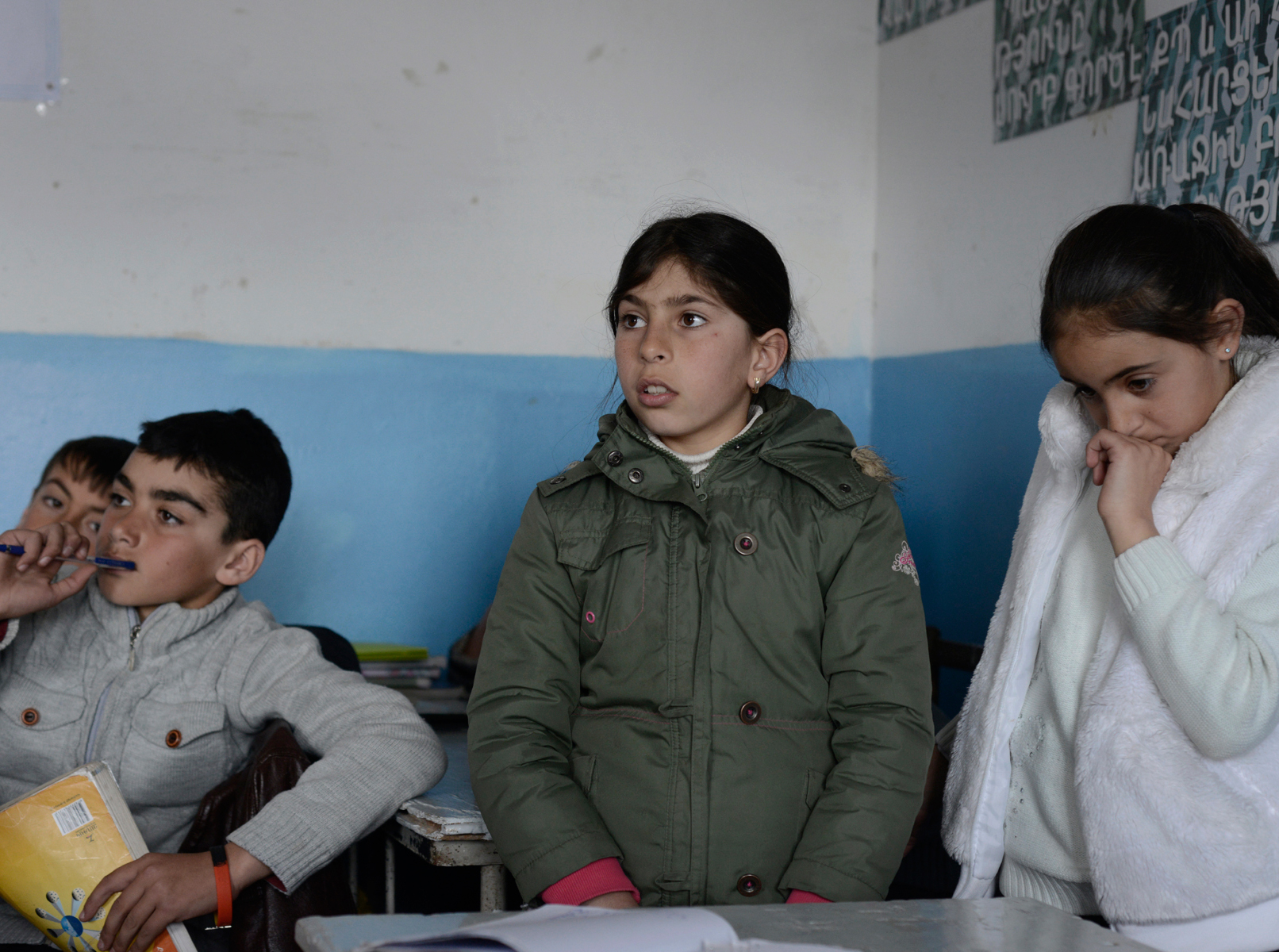
Photo: Vaghinak Ghazaryan/Mediamax
“When we just started carrying out community programs, the kids were working with enthusiasm, although they didn’t realize the importance of their actions. To encourage that approach, I sent out motivational letters to their families, writing, “Well done! I can see that a boy (or a girl) like you is the owner of this village, and I can see that the development of this community starts with your efforts, not those of the community leader.” The children were supported at home because parents appreciate the praise for their children. Finally, the parents began to trust me more. My work becomes easier and children grow more motivated, when they receive advice and encouragement at home.
When I first told them to take letters home, they were afraid - they thought I was scolding them, as if only bad behavior deserves notification. Now they are asking: “Have you got something for us to take home?”
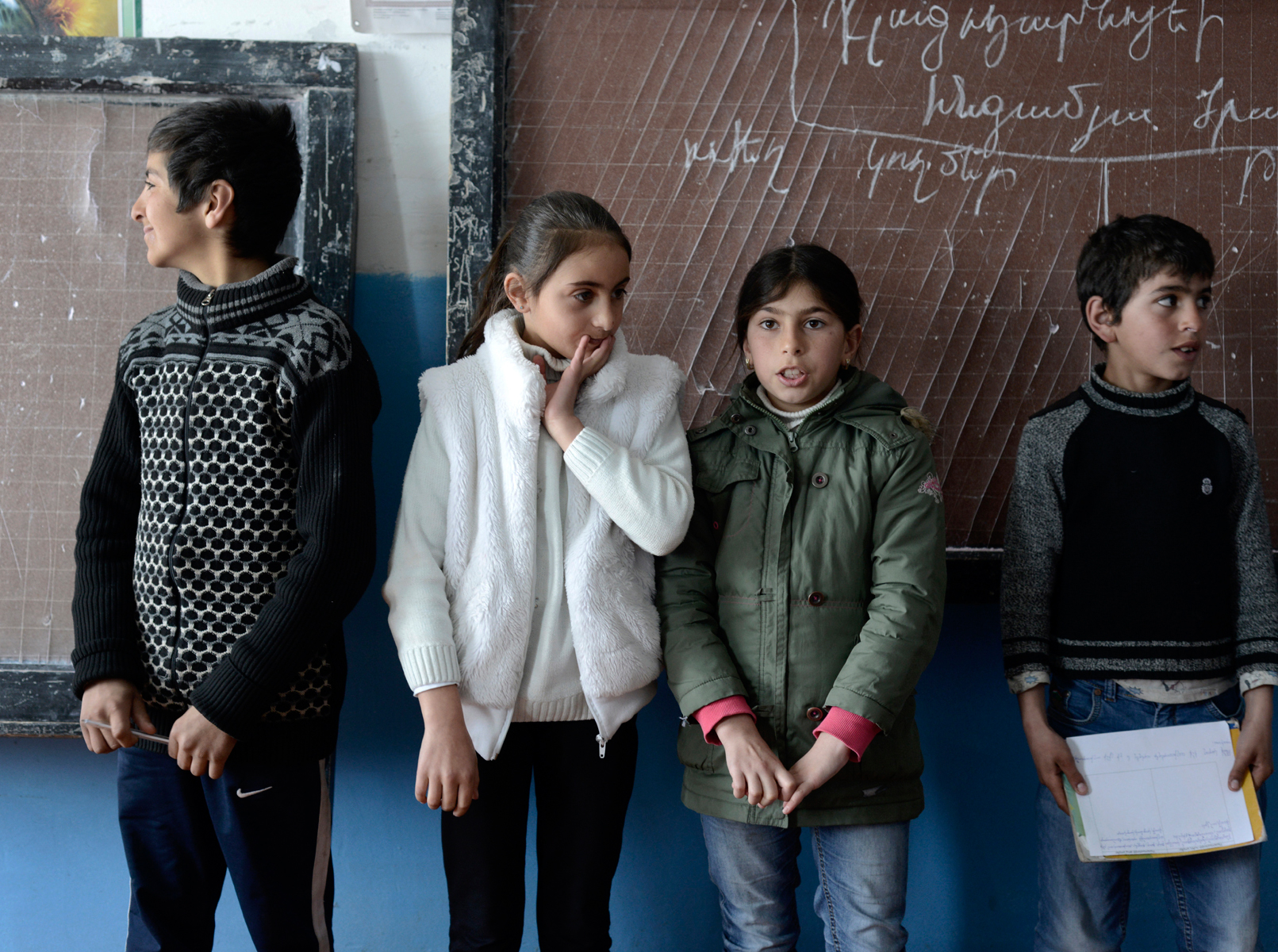
Photo: Vaghinak Ghazaryan/Mediamax
Rudolph says that he started to think bold owing to these children, which has significantly influenced his current ideas and plans. “The kids are still very young, but they are thrice as brave when it comes to their dreams and goals. My mission here is to make them think big.”
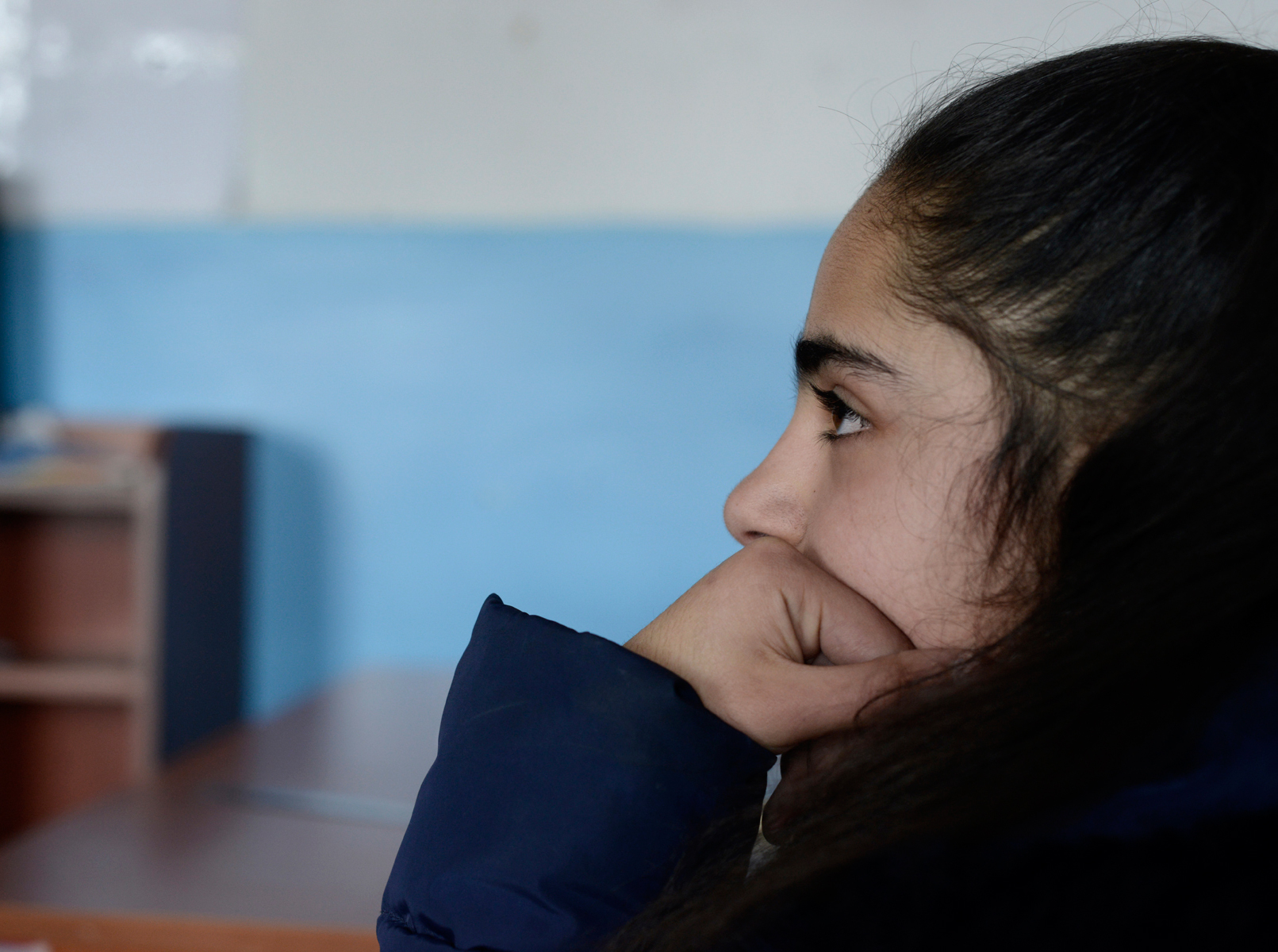
Photo: Vaghinak Ghazaryan/Mediamax
The kids already have some serious plans. Many of them think of engaging in wool processing, knitting socks or gloves and selling them to the visitors. One of the boys has decided to use his cart and his grandfather’s horse to provide horse taxi services for the visitors. The business club has also discussed rabbit breeding. The children were very excited when Mr Harutyunyan’s simple calculation proved that they could buy just two rabbits and get 600 within two years. The majority of Rudolph’s students, including girls, is already engaged in the rabbit business.
“I have 7 rabbits now. I will breed them and we will be able to sell them. You need to change the water 2 times a day and give them potatoes and carrots. If we feed them a lot, but not on schedule, they won’t grow as much as when we feed them small portions on schedule. My rabbits eat in the morning and at around 4 p.m. If I’m late today, my dad will feed them,” tells Narek.
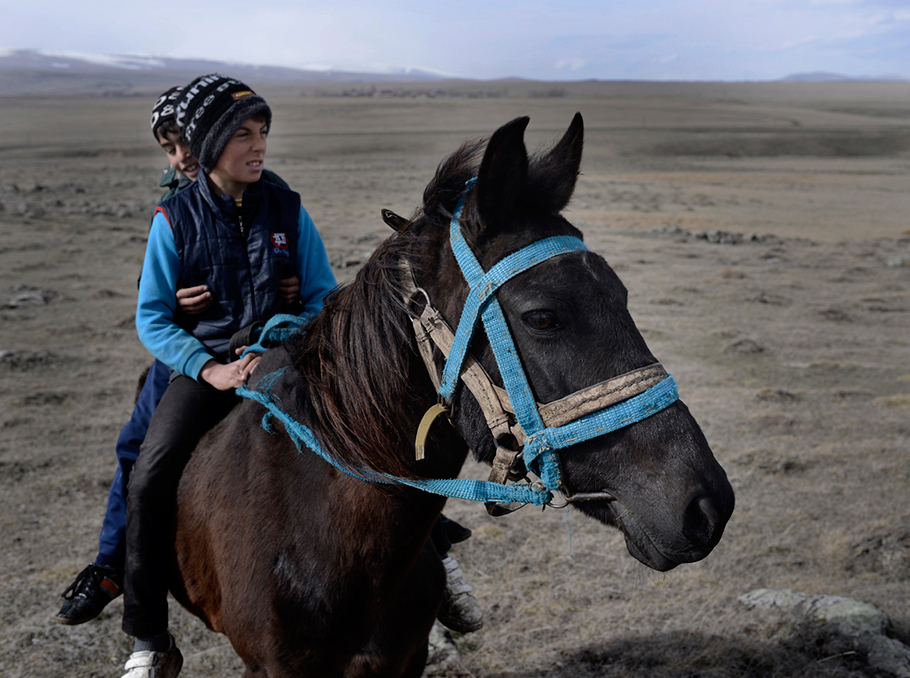
Photo: Vaghinak Ghazaryan/Mediamax
Rudolph knows from experience that 6th-7th grade pupils doing business and thinking about income should not scare people. The kids do the kind of work that requires education. If they think about community development while still in school, they will start making projects once they become students.
Rudolph is 22 years old. He was a student at the Caucasian studies of History Faculty in YSU and learned business skills in the family – his grandfather had a shoe production, his father is in real estate business.
When it was decided he would teach in the village of Blagodarnoye, Rudolph searched it online. He found out that the village had a problem selling agricultural products. “I thought, “This is great, this is what I wanted – a village with problems.” If there is no connection between the village and the city, I’m going to become the link they need.”
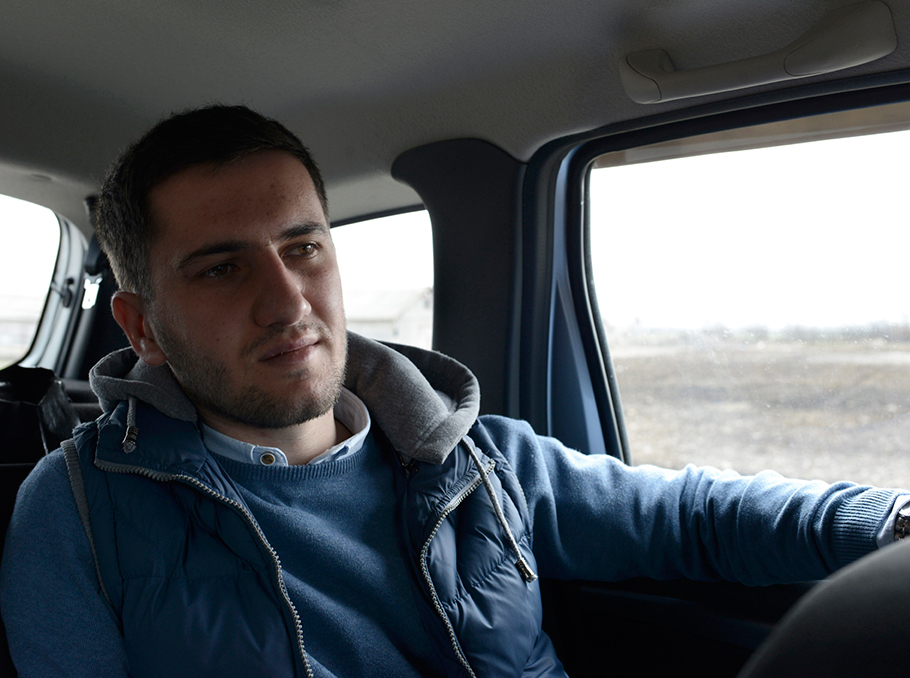
Photo: Vaghinak Ghazaryan/Mediamax
Rudolph has noticed that all rural communities in Armenia have the same culture: whoever you are, if you don’t prove your words with actions, people won’t trust you. That is why he never promised anything.
He started with selling cheese by 100g lumps and later increased the sale volume. Now he sells 1-1.5 tons of cheese per month. He works with cheesemakers in Blagodarnoye and two neighboring villages that have the same issue, and with the village residents who want to start a company but have no idea how or fear the risks.
Rudolph studied the market first. He noticed that the types of cheese on sale in local shops were expensive and of poorer quality that the cheese produced in the villages. He offered the shops to buy cheese made of the milk from cows browsing in alpine fields, for a convenient price. Rudolph registered as an individual entrepreneur, got the license, and now the people from Blagodarnoye and adjacent villages sell their cheese in Yerevan, Abovyan, Etchmiadzin, and Ararat marz.
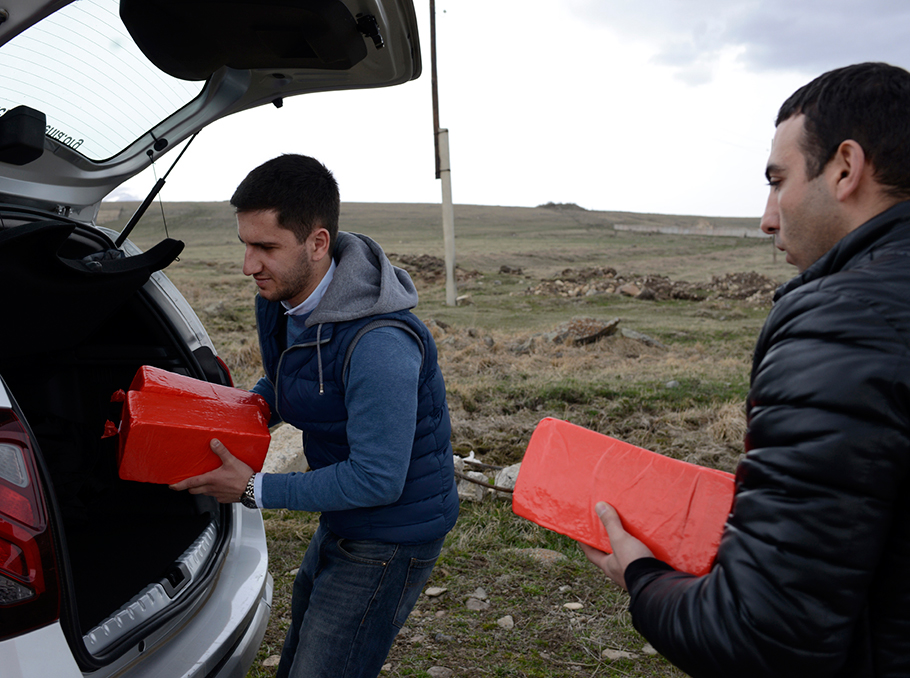
Photo: Vaghinak Ghazaryan/Mediamax
“One of the important preconditions of our success was that my priority didn’t lie in profit. I wanted to solve the problem of sale. I do this on weekends. People often order 0.5-1kg of cheese. If they try to buy that amount in the village, cheesemakers might refuse to sell, saying, “But half a kilogram is too little!” But I’m not staying idle. I cut the cheese into 0.5-1kg lumps and deliver them. We used to package the cheese in white plastic bags, but then we realized it took only a little more effort to get red or yellow packaging to make the product look more appealing. That helped boost the sales. Even if the villagers didn’t want to change the packaging, I took the cheese and re-packed it at home.”
Meruzhan Janoyan is a history teacher in the school of Katnarat village and a cheesemaker as well. He used to sell milk, but it was a less profitable business. Before the arrival of Rudolph Harutyunyan and the subsequent cheese breakthrough, Mr. Janoyan sold his cheese in Vanadzor and had irregular income. Now he even has trouble sometimes getting the required amount – that’s how much the business has grown.
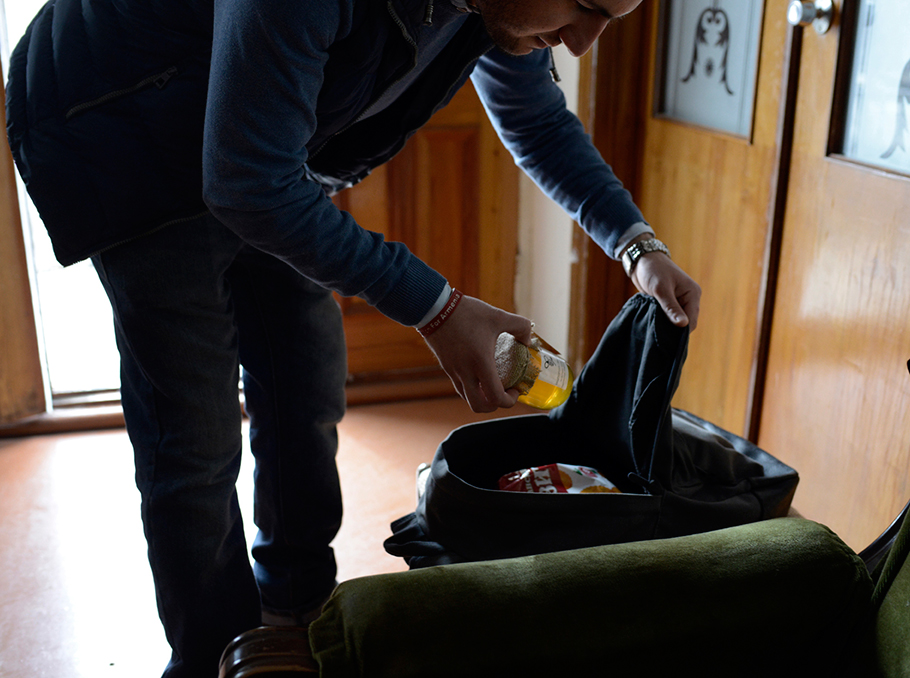
Photo: Vaghinak Ghazaryan/Mediamax
“We have had a farming economy for about four years, but we only took our product to wholesale market with Rudolph’s assistance. It is a great help because we don’t need to search for a market anymore.
I plan to graze my cattle high in the mountains this summer, as the pasture is good and I will get milk of high quality. I have purchased a milk tank truck to get the milk down to the village and process it. Although I mainly make two types of cheese – “chanakh” and “lori”, we want to expand the range of our products. Other people in the village see that this business brings profit and now they want to sell their dairy too.”
Alpine meadows not only give high quality to the milk, but also serve as a source of excellent honey. One day the children suggested Rudolph to pay a visit to the neighboring village of Meghvahovit (“valley of bees” in Armenian), and an idea struck Rudolph: “Nature itself gave us a brand! Just the name of the village is enough to sell honey!” And so he started discussing with villagers where their problems with sale were coming from.
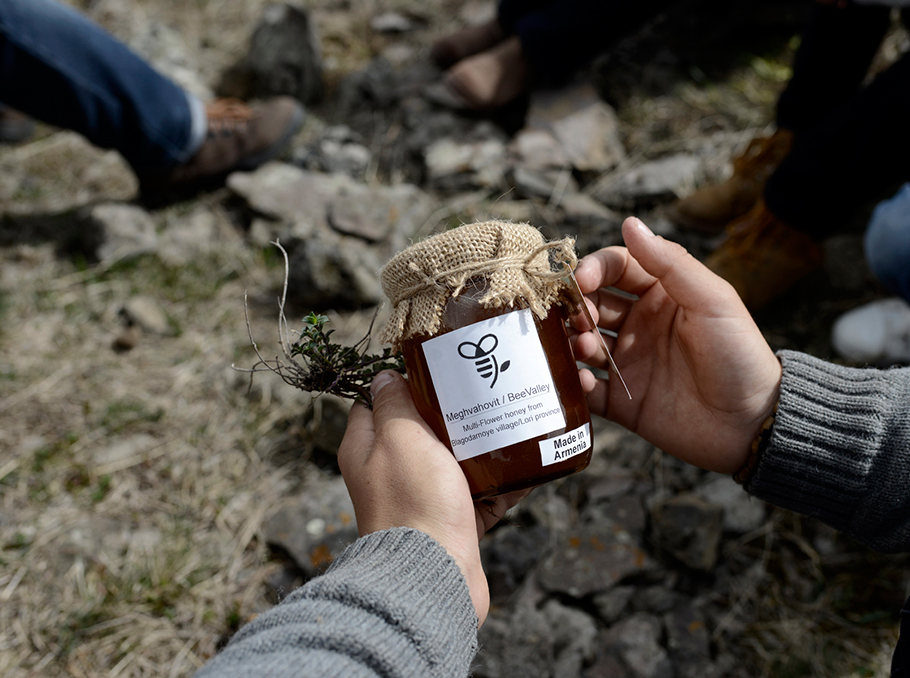
Photo: Vaghinak Ghazaryan/Mediamax
“They were trying to sell honey within the village, but if you have 2 tons of honey and 50 families living in the village, you cannot sell it all. Besides, honey was packed in different containers, for instance, green pea tins. Even if the honey was good, the containers turned away potential buyers. And thirdly, honey produced in Meghvahovit had no official name, no brand, and no logo.”
Once they established what the problems were, they started to think about possible solutions. The successful example of cheese sale showed that there is always a solution. Rudolph drew a logotype with the help of a friend and brought sterile tare. The villagers who wanted to take their honey to the market had to comply with two requirements: not to feed sugar to bees and put honey in sterile containers.
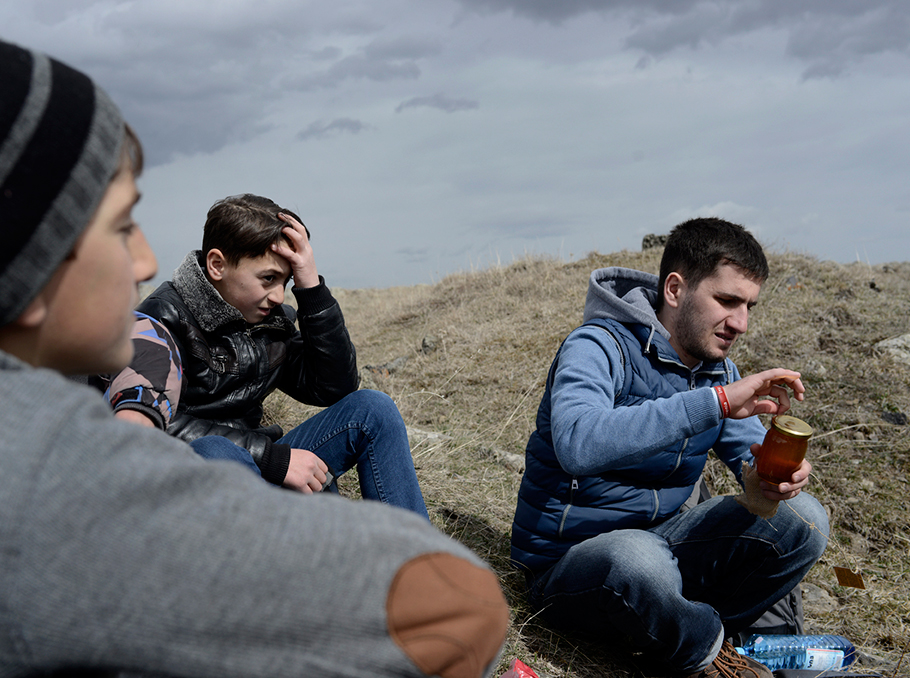
Photo: Vaghinak Ghazaryan/Mediamax
“Meghvahovit” brand presents the honey from various flowers harvested in four villages: Blagodarnoye, Katnarat, Meghvahovit and Noramut. They sold 300kg of honey in one month. Now they have clients even in Russia and Austria. Usually people order via Facebook and receive the honey by post. The demand is growing, but there is nothing left. They are waiting for the new honeyflow.
Cheese, honey and wind will become the brand of Blagodarnoye village. The locals plan to hold festivals and invite guests to take part in honey harvesting, haymaking, and kite making.
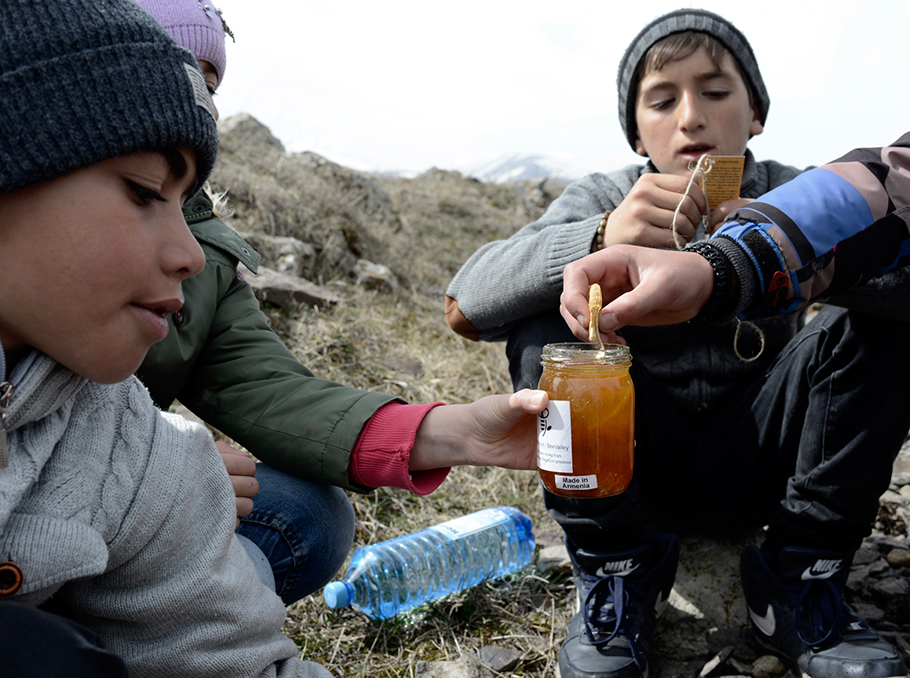
Photo: Vaghinak Ghazaryan/Mediamax
Rudolph is motivated by his pupils and their innovative, creative, bright ideas. He also wants to see Armenia’s rural communities advance and villagers to turn from exhausted people with no prospects into farmers happy and proud of their work.
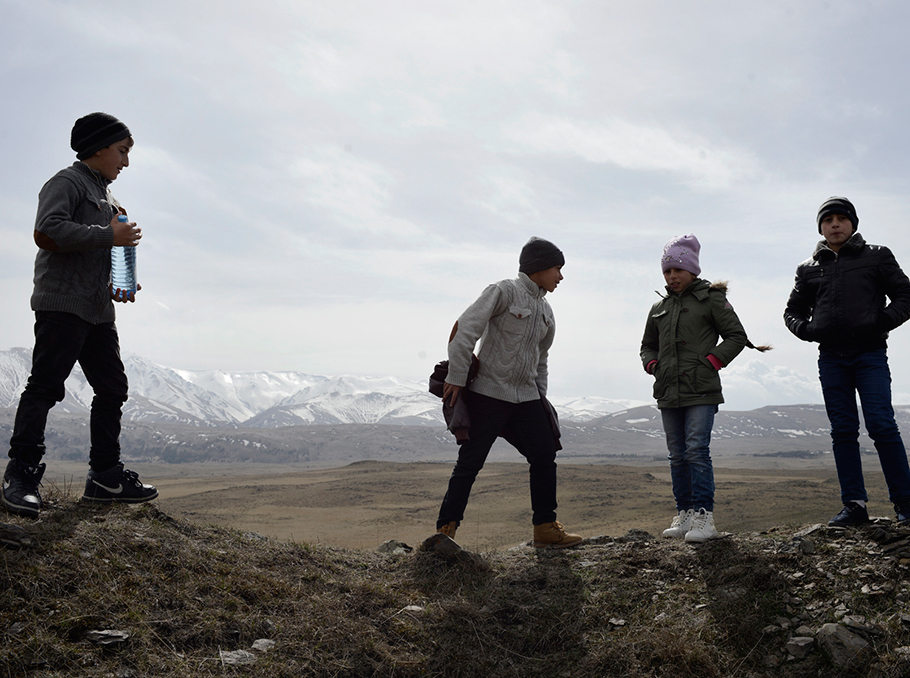
Photo: Vaghinak Ghazaryan/Mediamax
He has made a decision – he will stay in touch with Blagodarnoye even three months later, when the program ends and he returns to Yerevan. He will carry on helping the villagers sell their honey and dairy and put all his efforts and connections into assisting the village that has grown on him like a hometown. He doesn’t speak with children about leaving Blagodarnoye. According to Rudolf, it is not a tragedy, just a natural process.
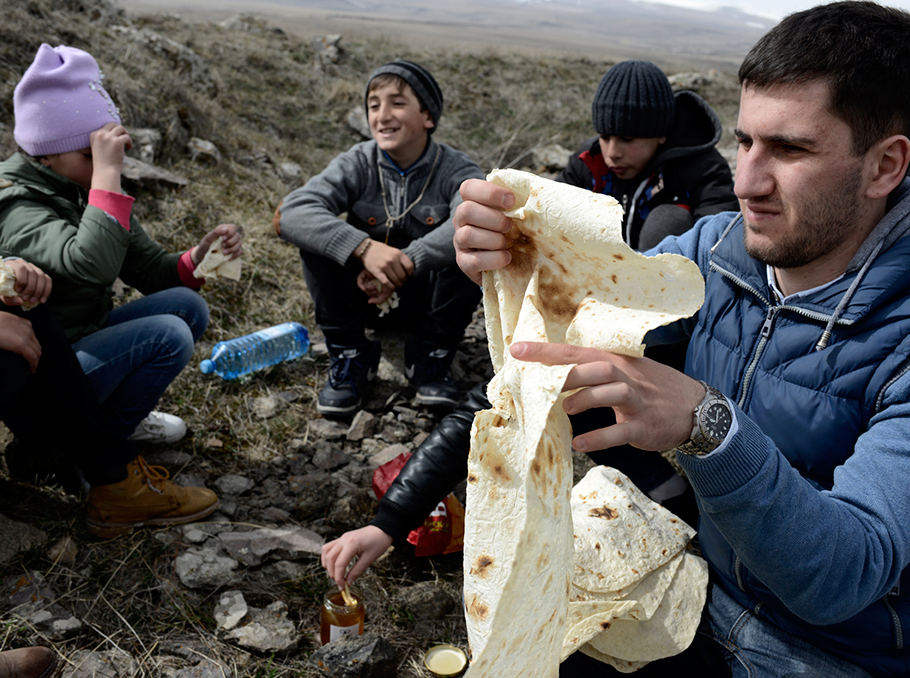
Photo: Vaghinak Ghazaryan/Mediamax
“I didn’t come to stay with them forever. I came to leave one day, to work so that the children can secure progress for their community even without me. I came to show the ways to do so, but when I’m gone, people will forget about me and start thinking of new ways themselves.”
Rudolph and the kids often climb the mountain to talk about future plans. Sometimes they take along the guests, who get excellent reception in Blagodarnoye. One of the boys takes my hand to help me climb, another lays down his jacket on the stone where I’m supposed to sit, and the girls gift me multicolor band bracelets they have made. Later they tell me about their plans and treat me to honey.
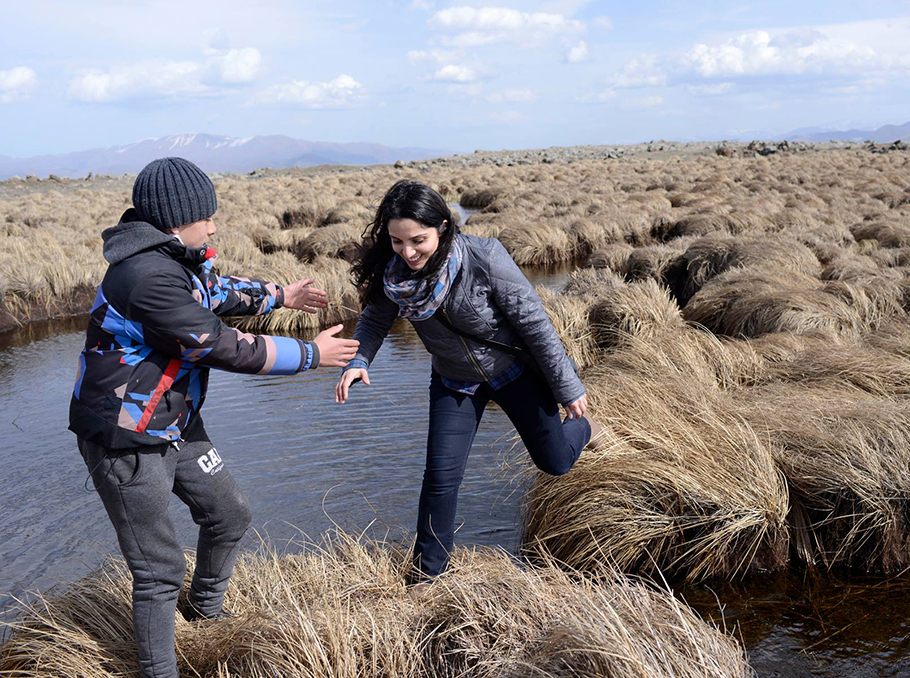 Lusine Gharibyan
Lusine GharibyanPhoto: Vaghinak Ghazaryan/Mediamax
“Armen and I want to keep bees. When we harvest plenty of honey, we will tell Mr. Harutyunyan and he will give us the containers. Honey is a great present, better than chocolate sweets or bars,” says Artur. “This is your village’s brand. You don’t have to take me with you to sell it,” Rudolph encourages him.
As we climb down, the boys talk between themselves and share new ideas with Mr. Harutyunyan. They have decided to give out bundles of thyme to customers who buy their honey. “If others offer them the same honey, they will buy from us to get thyme too!”
Lusine Gharibyan
Photo: Vaghinak Ghazaryan (specially for Mediamax)
VivaCell-MTS is the general partner of the project. ![]()









